Is your child going to school in September?
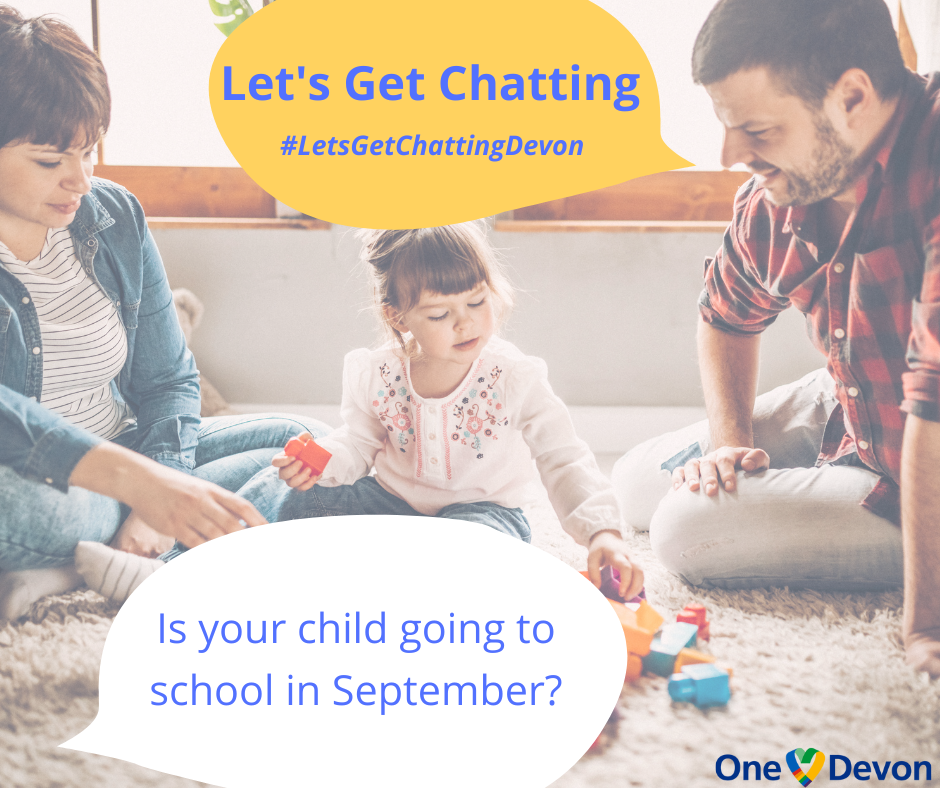
Spending time with your child, chatting and doing what they enjoy, sets them up nicely for school. All children are different and will be developing at their own pace. Some children will need a little more support. If you are worried, talk to their health visitor or their nursery, preschool or childminder and their new teacher.
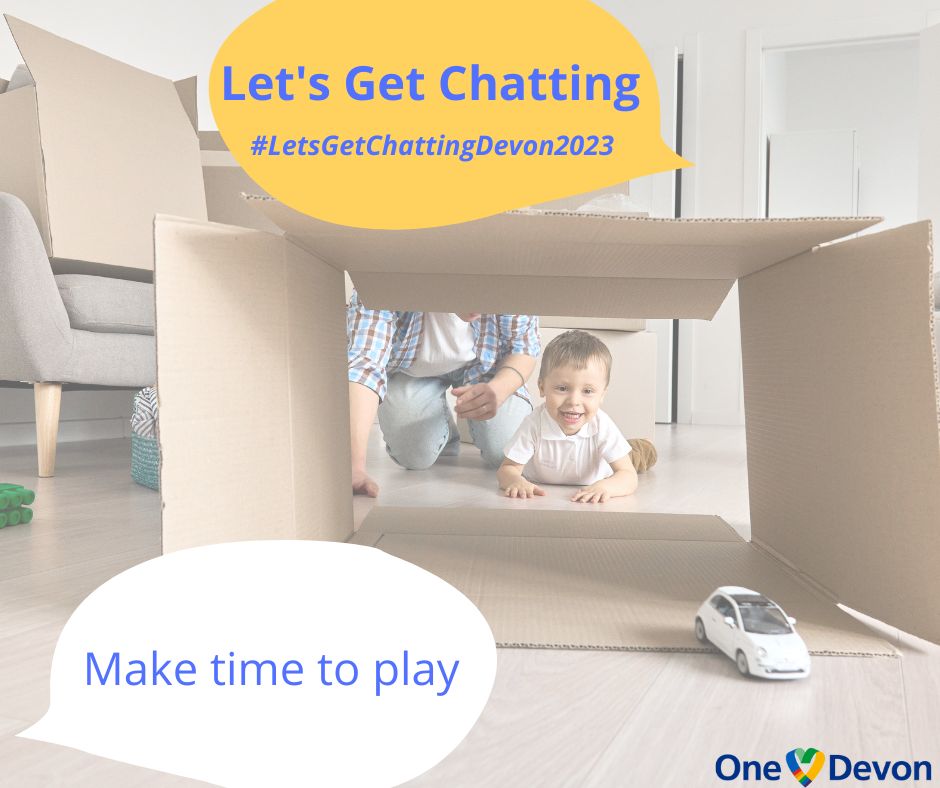
Make time to play. Play helps children to learn and develop in so many ways. Children get to practise moving with more control, exploring their feelings and taking turns. Children experience solving problems in play, building their confidence and learning about numbers. Play also helps children develop the language to talk about what they are doing. Children are naturally curious about the world, so let them explore and talk about the adventure! How many different ways can you play with a stick or a cardboard box?
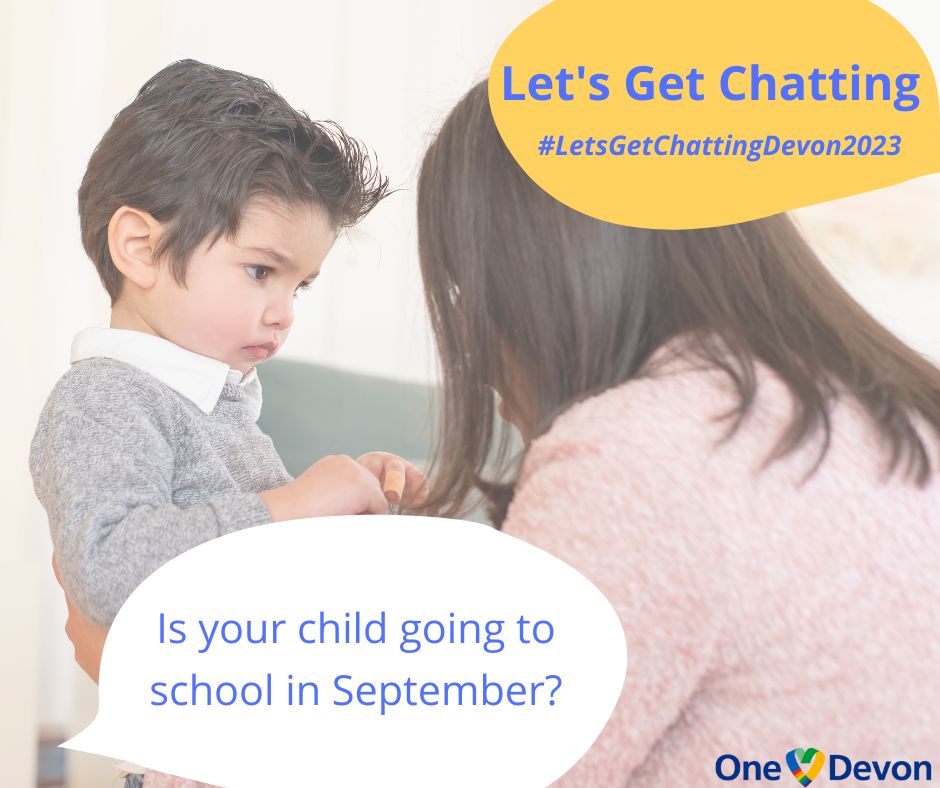
Starting school is exciting but can also be a time when both children and parents become anxious. Talking calmly and positively about going to school and using words to describe different feelings can help to reassure your child. Talking in this way also gives them the language to share how they are feeling. Take care not to over-hype the first day in case it does not live up to expectations. If you are worried, try not to let it show.
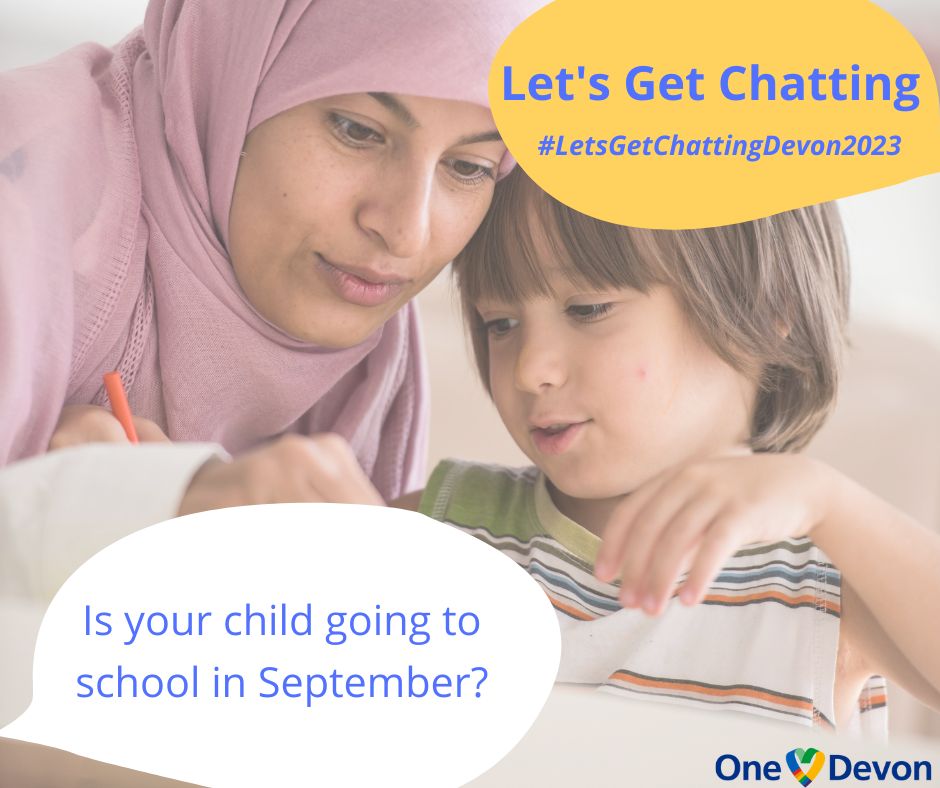
Knowing what will happen can make all the difference to a child’s first days at school. Find out about daily routines such as how the day starts, snack time, assembly, lunch time, what happens in the afternoon and at home time. Talk to your child about the daily timetable using language related to sequence and time. Words such as first, next, then, after that and at the end of the day will. Some children will find a visual timetable helpful, with pictures of the different activities in the order that they will happen. Let the school know if you think your child will need extra support to settle into the new routine.
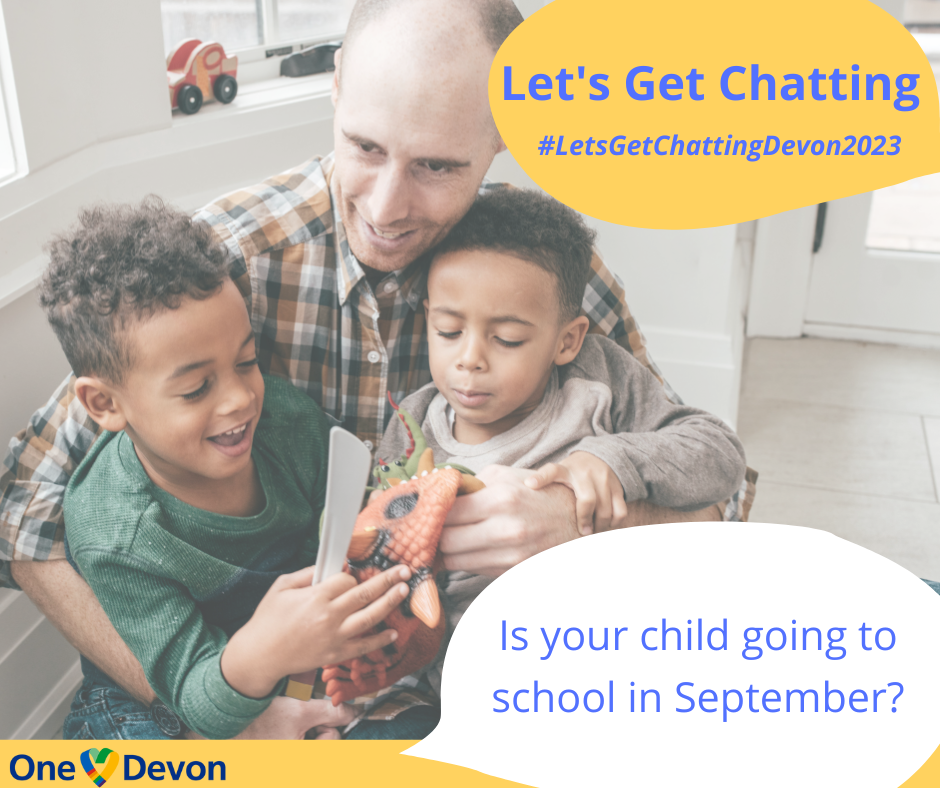
Talk with your child about sharing as you play together. This will help your child understand how to interact with other children and will give them the language to do so. Practice taking turns when playing games together. Being alongside and playing with other children helps to develop these important social skills. Ask your local Children’s Centre about stay and play groups in your area.
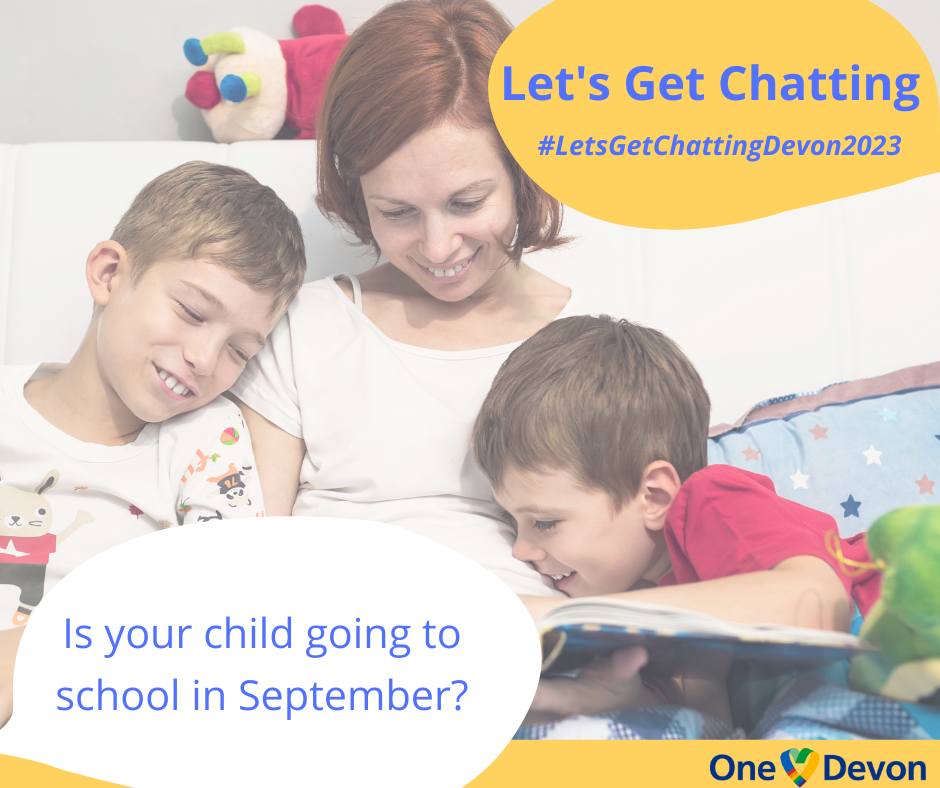
School can be tiring! A good bedtime routine now sets children up nicely for school. This means that they can make the most of all that school offers when they start in September. Having a routine that helps your child to get a good night sleep will also help them to manage their feelings and emotions better. Reading a favourite book or chatting quietly together are great ways to help your child relax.
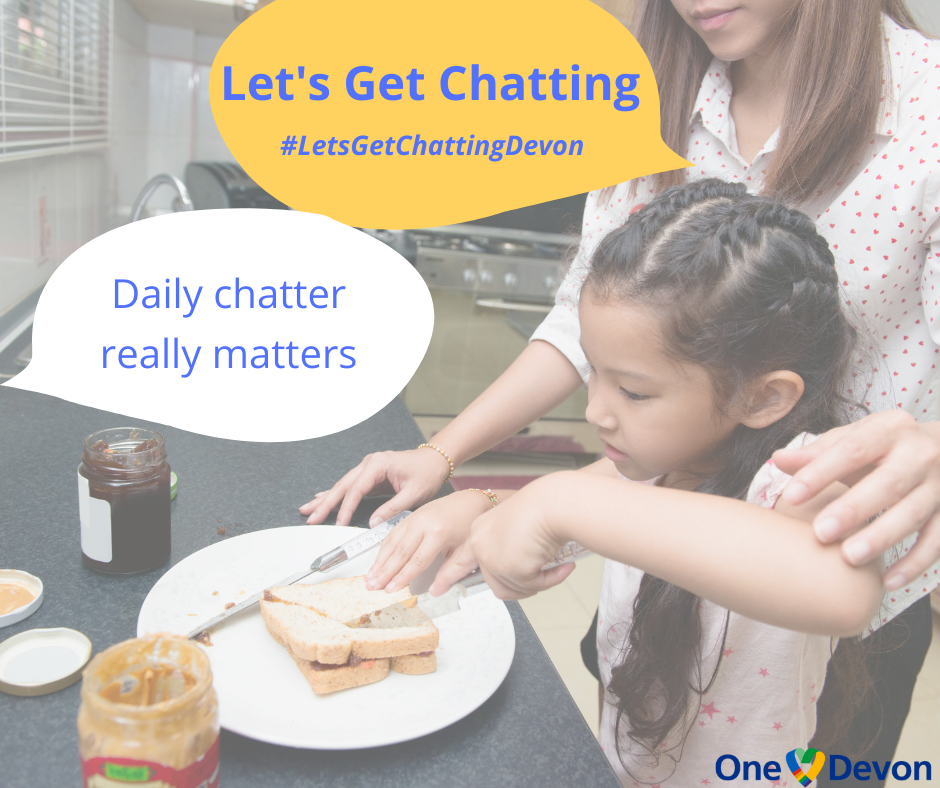
Daily chatter really matters! When talking and listening during everyday routines, children hear and use new words. This helps them to learn about the world around them. It can be as simple as counting as you are doing up your child’s buttons or talking about the birds you see in the park. Making something together, like a sandwich, gives you lots to talk about! Use action words like cut, spread, slice and sequence words like first, next, then, finally. Daily chatter builds confidence to talk. Then children feel able to let their new teacher know what they want, ask questions, and talk to other children.
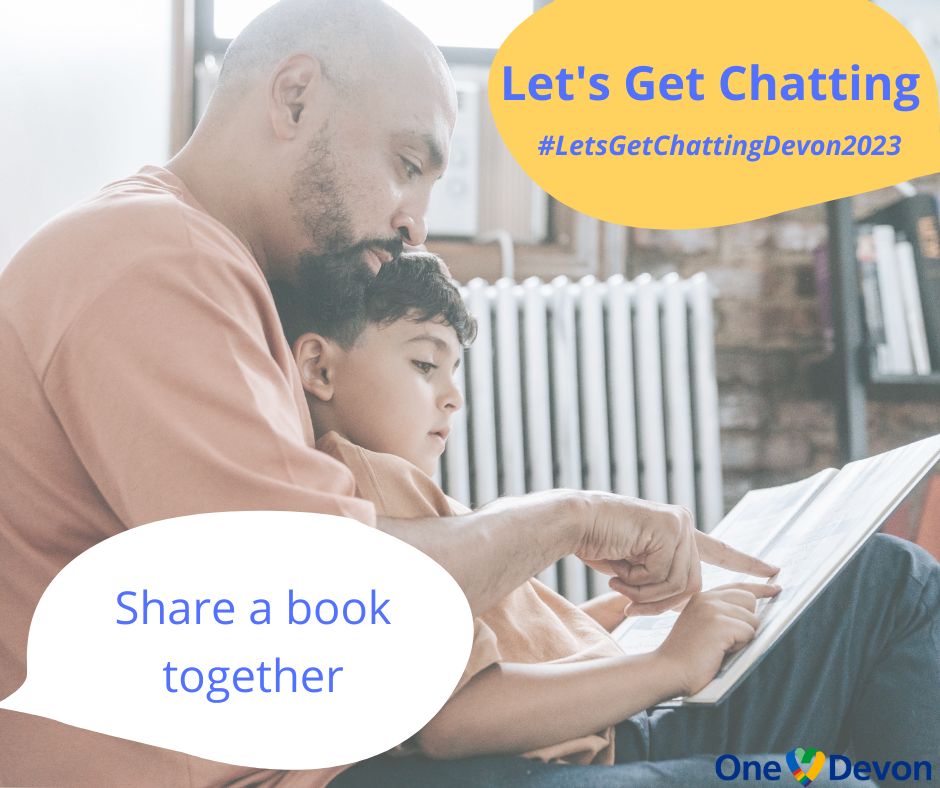
Sharing a book together will help your child’s language development at any age. For children who will be going to school soon, it is especially valuable. Let your child take the lead and turn the pages. Talk about the pictures. Children love to hear the same book again and again! This helps them to remember and join in with the words and begin to retell stories. Reading books about school will help them get used to the idea. Local libraries have a range of children’s books that you can borrow free of charge.
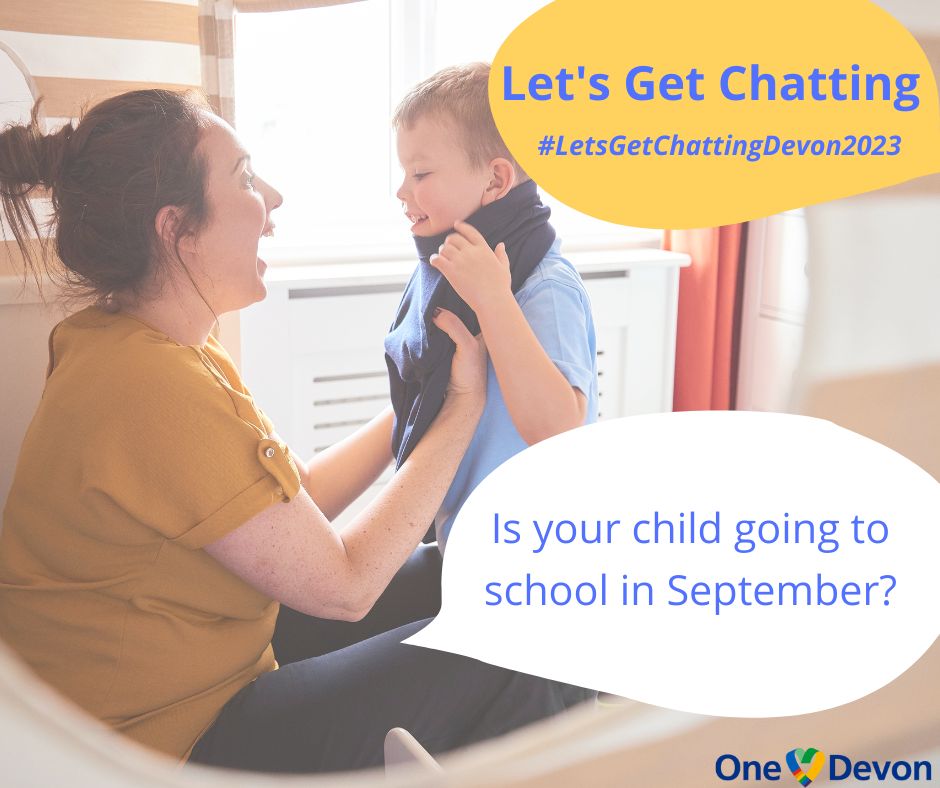
Children are less worried when they know what to expect. Talking to your child, using words related to school can really help. Words like teacher, class, playground, learn, lunch, book bag, uniform, coat peg, PE kit and tidy up. You could take the journey to school before the first day and talk about what you see on the way. If there are events at the school you could join in and then encourage your child to remember and talk about what happened.
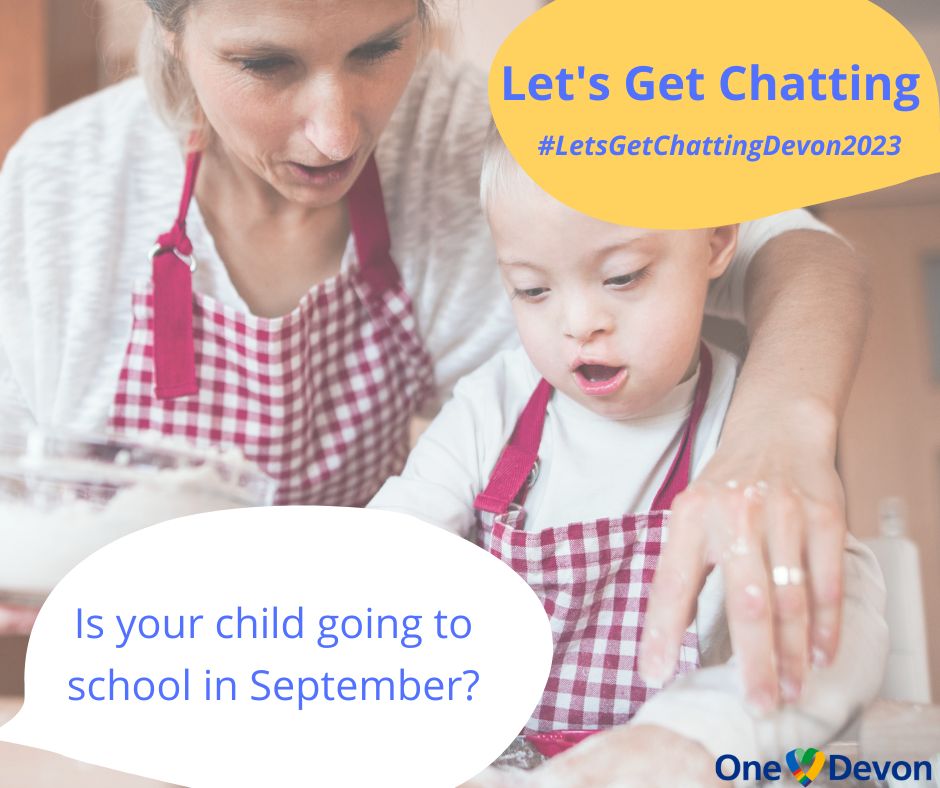
When you give your child choices you help them to increase their vocabulary. You could ask “What shall we put on next… socks or vest?” or “would you like an apple or a satsuma?”. There will be lots of decisions for your child to make at school. Decisions they might make are what and who to play with, choosing what to eat at lunch time or which book to bring home to share with you. Giving your child simple and realistic choices will help them to become more independent and responsible. This will also help to build their confidence to make decisions and solve problems.
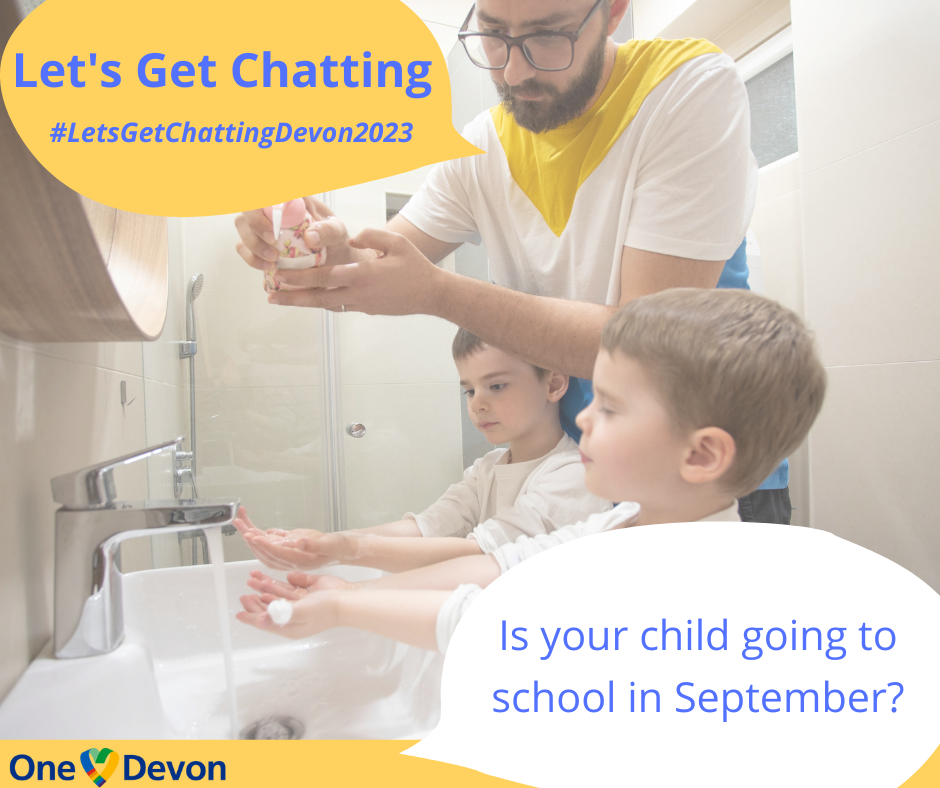
Talk with your child as you go through their routines such as using the toilet or getting dressed. This will help your child to become more confident with self-care. Talk about what is happening and what to do next. For example, “Now flush the toilet. After that wash your hands, then dry them”. Your child may need to hear just one instruction at a time. Encourage your child to tell you what the routine is.
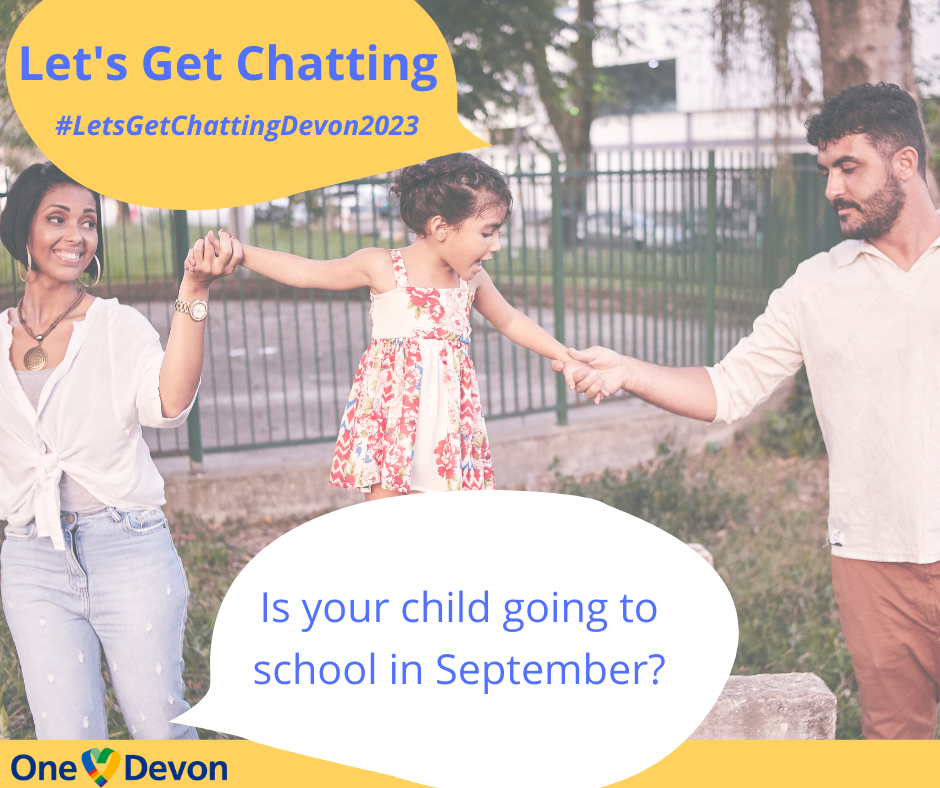
Children are naturally curious! Noticing things around you and talking about them encourages learning. Listen for sounds together. As you walk to the shops, listen to the sounds you can hear. Who can hear a new sound first? This helps your child to become a good listener. Games that help them to listen to the sound at the beginning or end of a word will also help with reading and writing.
Noticing your child’s communication
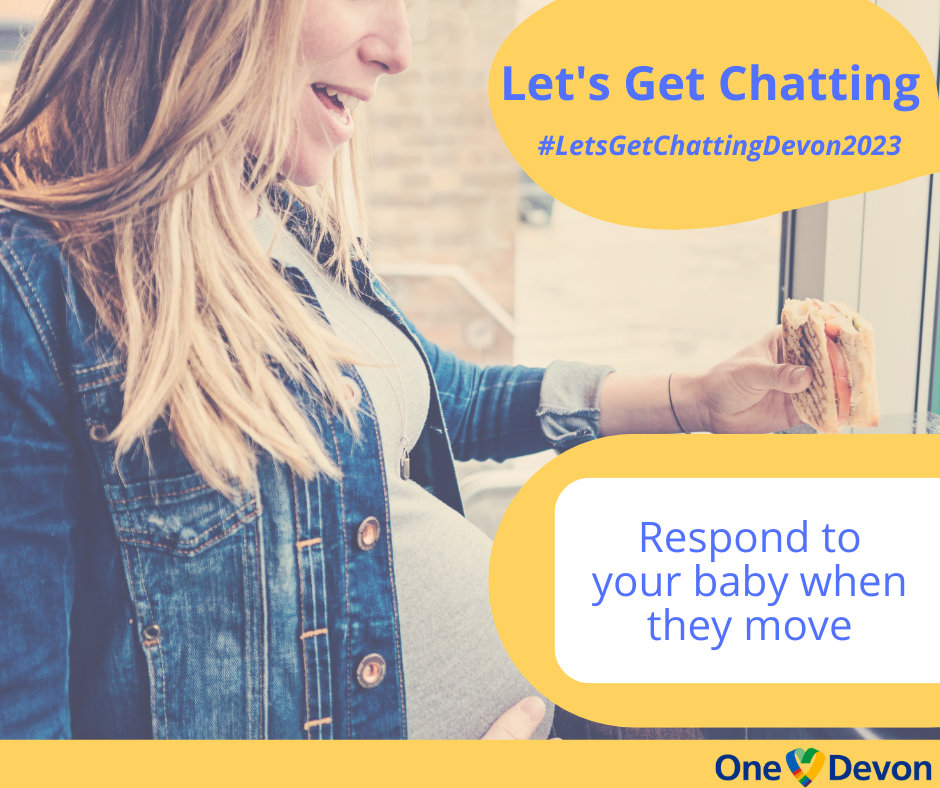
Responding to your baby when they move starts a conversation even without words. You can say hello, touch your bump and talk about what you’re doing. It all supports that special connection between you and your baby.
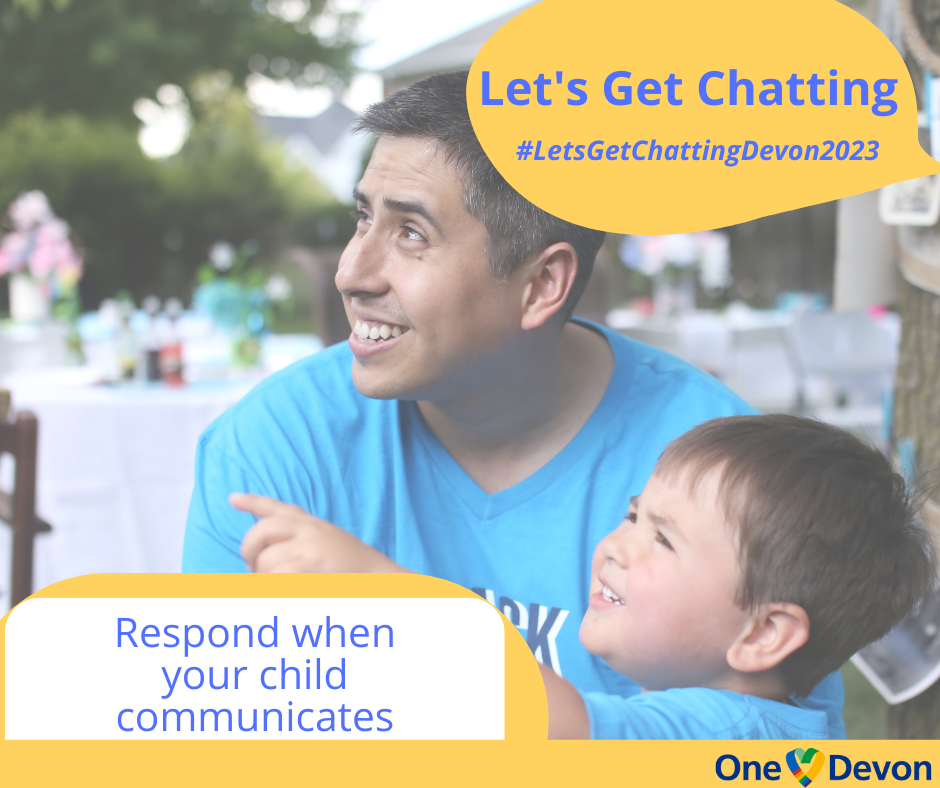
If your child is 2 or 3 it’s likely that they will be communicating about lots of things that they see around them. Each time you respond by looking at what they are showing, answering their questions or adding new words to the ones that they’re already using, you are showing them that you value their communication and also helping them to learn new words.
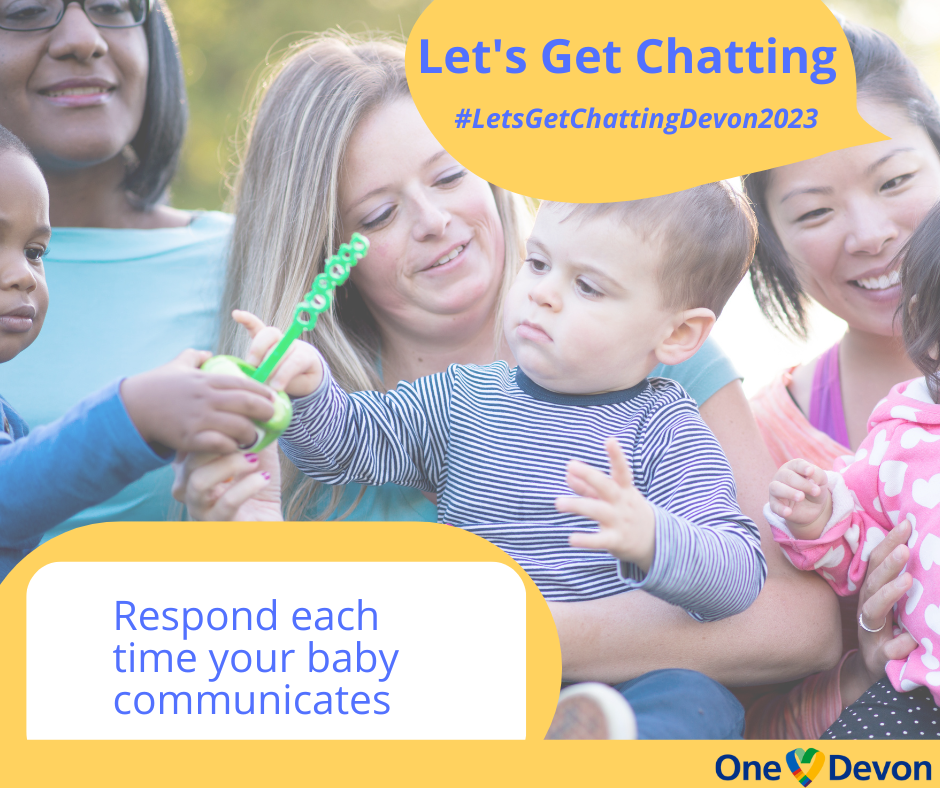
When children are aged 2 and under they may communicate by using their eyes and head to look at things, they might point, use sounds or take your hand. Even crying and getting cross are powerful ways for a young child to communicate! Whichever way your child communicates with you today, responding to them shows that you have received what they are trying to tell you. You can respond by pointing to what they are looking at, making the same noise as them, using a word for what they are showing you, or by naming what they are feeling. Responding warmly to your baby helps to build your special relationship.
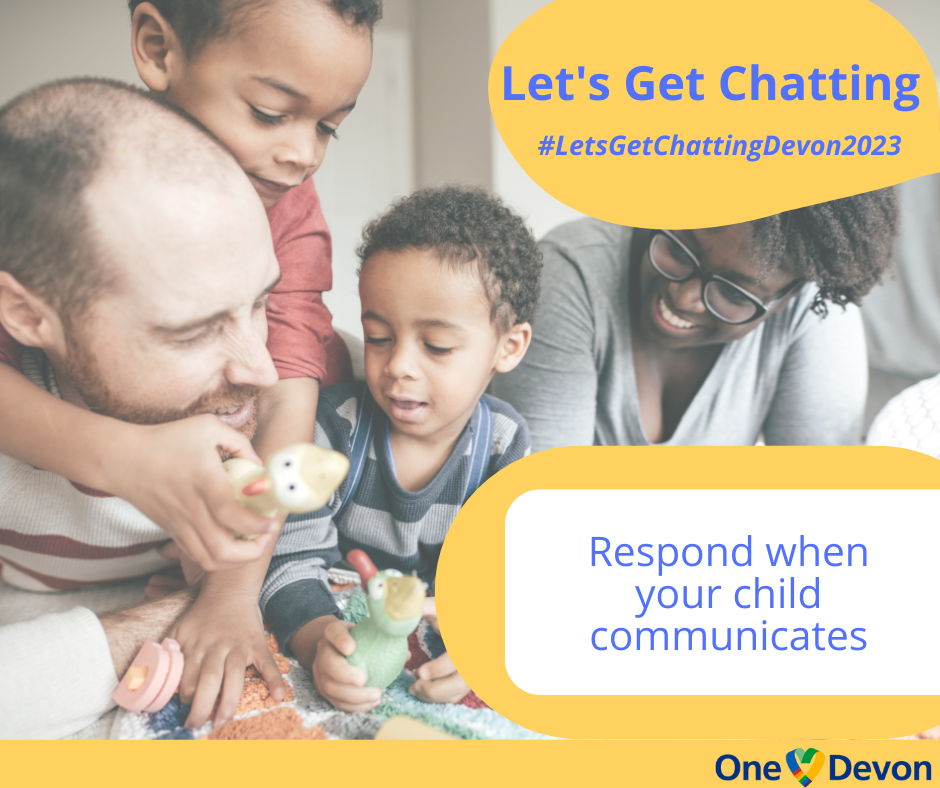
Children who are 3 to 5 will really benefit from ‘together time’ with you each day. If you let them take the lead as you play with them, listen out for what they say and respond by answering their questions and adding new words. Adults are often the first to talk, but if you focus on listening to what your child says first and then responding, who knows what you might end up chatting about!
Responding to your child’s communication
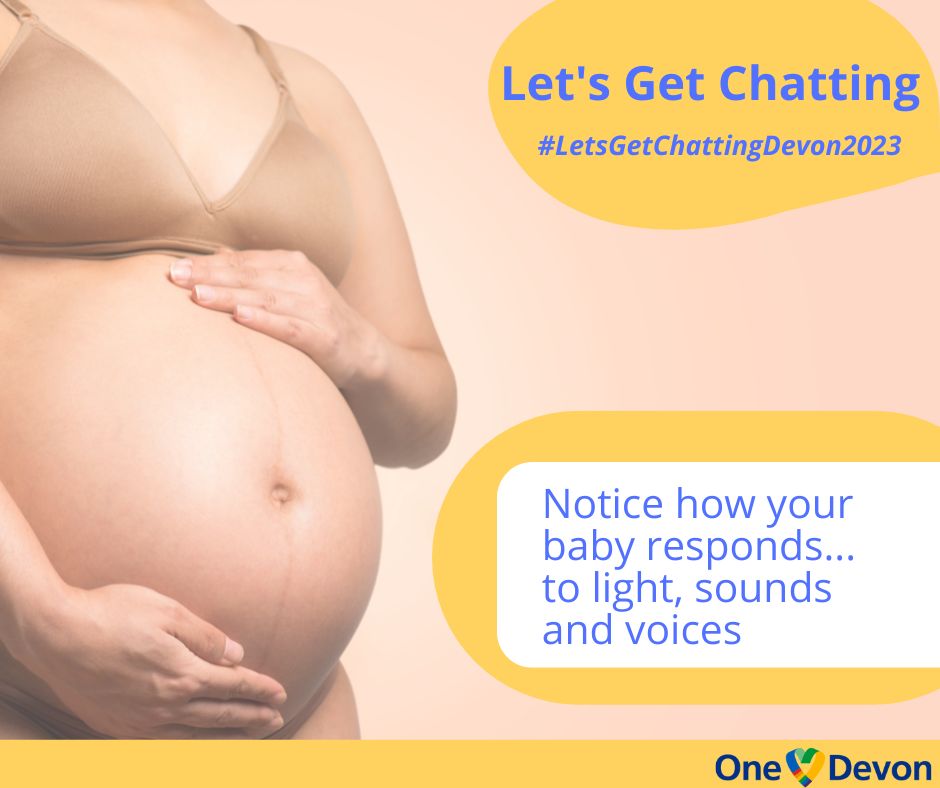
There are so many ways that parents-to-be support their growing baby’s communication even before they are born. Do you notice your baby responding to things like light, sounds, music and your voice?
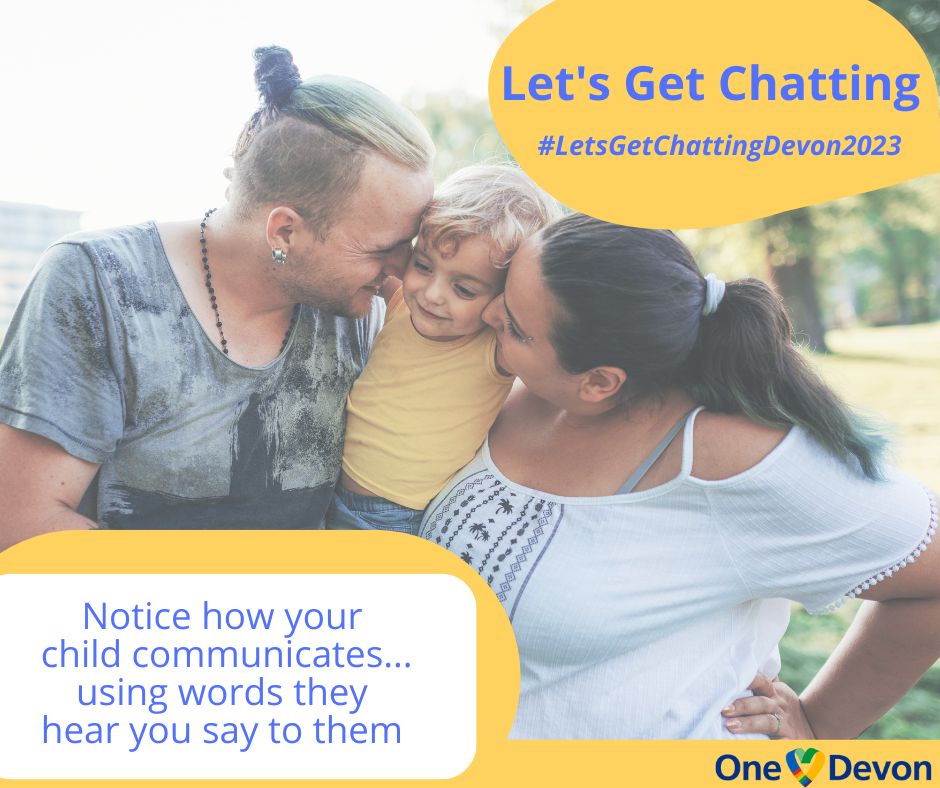
If your child is 2 or 3, I wonder what you notice today about their communication?
Are they using a few words together? Are they repeating words they hear you say? Whatever sounds or words they use, you can repeat them back to keep the communication going.
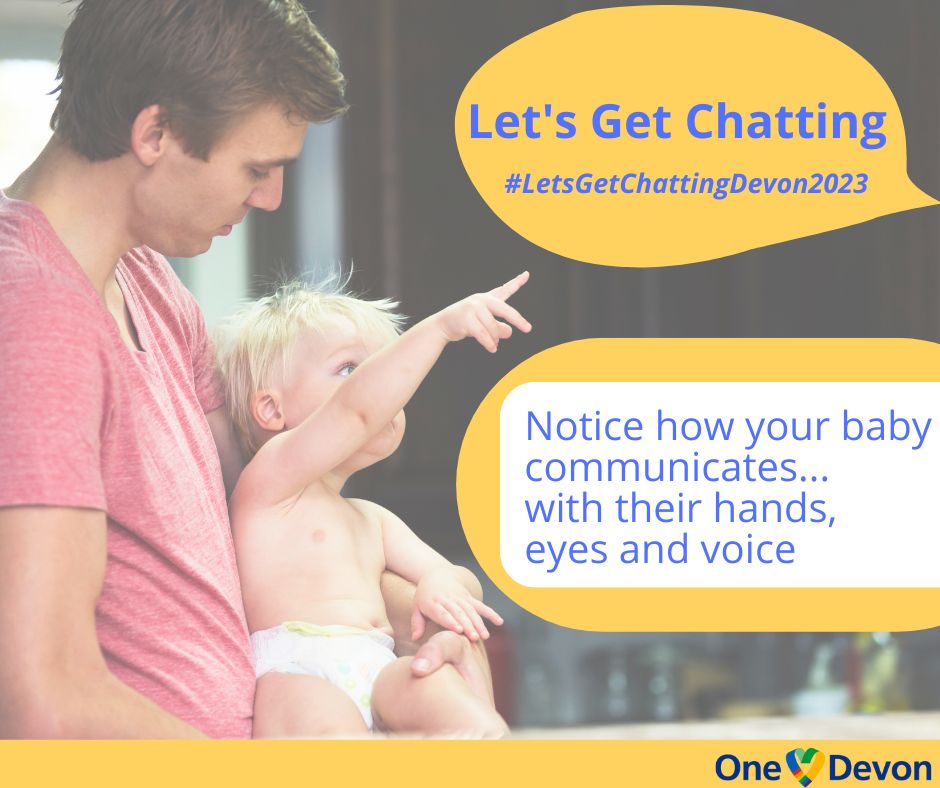
Are you a parent of a child aged 2 or under? Why not try noticing today all the ways that they communicate with you – using their fingers to point, using their eyes to show you, using their voice to make sounds and words – it’s amazing!
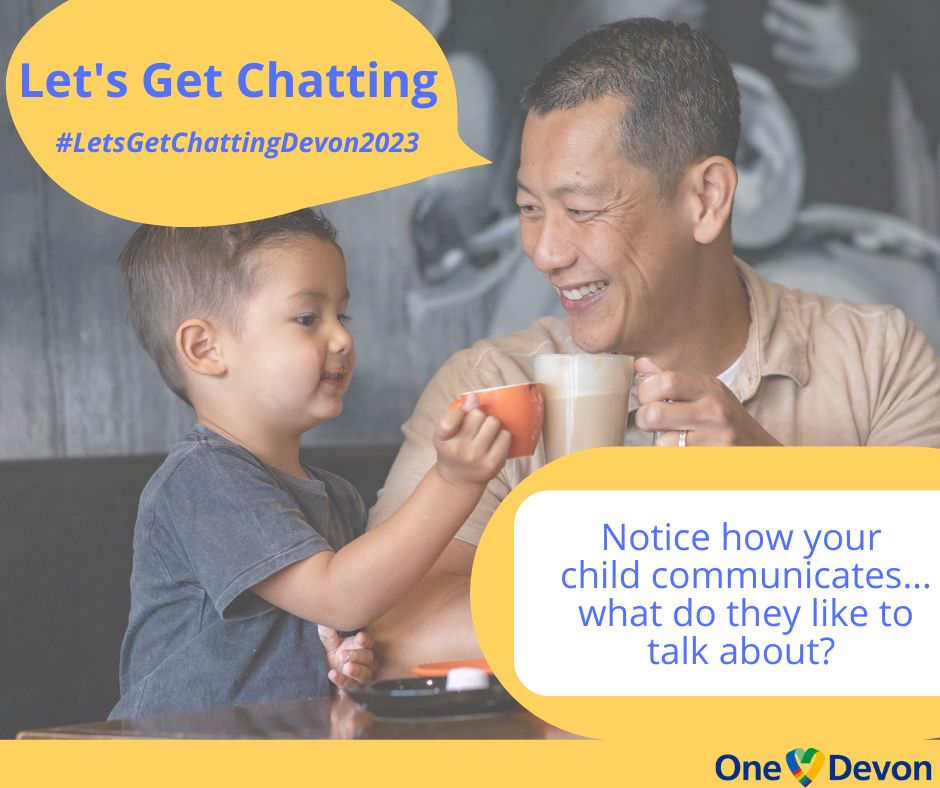
Children between 3 and 5 years are understanding so much of what you say and will be communicating more and more of their ideas to you. Noticing their favourite things to talk about can lead to great conversations!
Everyday chat
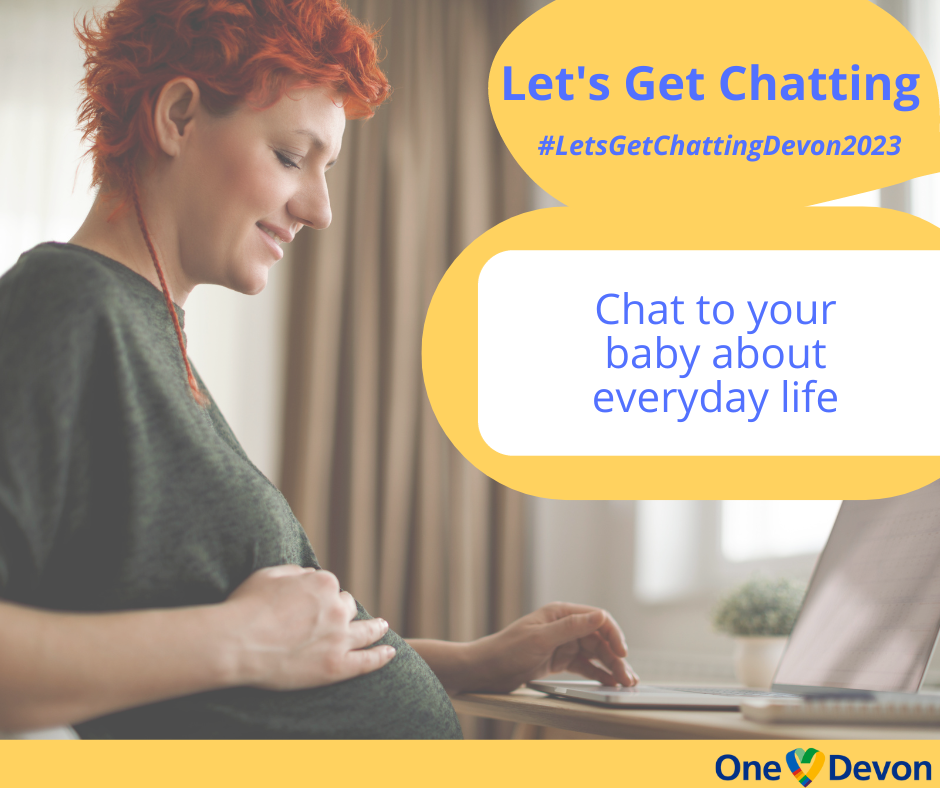
Your baby will soon be joining your daily life and will be hearing your voice many weeks before they are due to meet you in person. Chat about what you are doing during the day to include them even before they are born and to get them tuned into the sound of your voice.
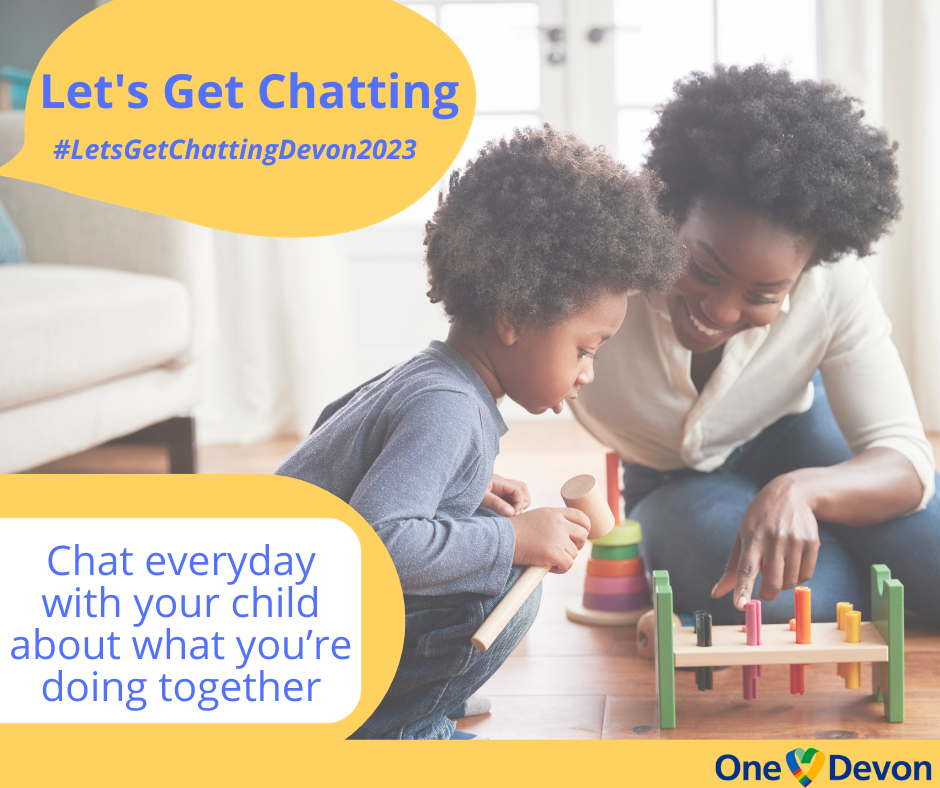
Chatting about everyday things with your 2 and 3 year old will help them learn new words. When you are playing together use words like ‘bang’ or ‘crash’ and describe what you see them do. It’s also really great when you use words for their feelings to help them learn how to describe their own feelings when they are sad, upset or worried.
Chat about memories and things that are going to happen in the future.
Using a variety of words will introduce them to lots of vocabulary related to their daily life.
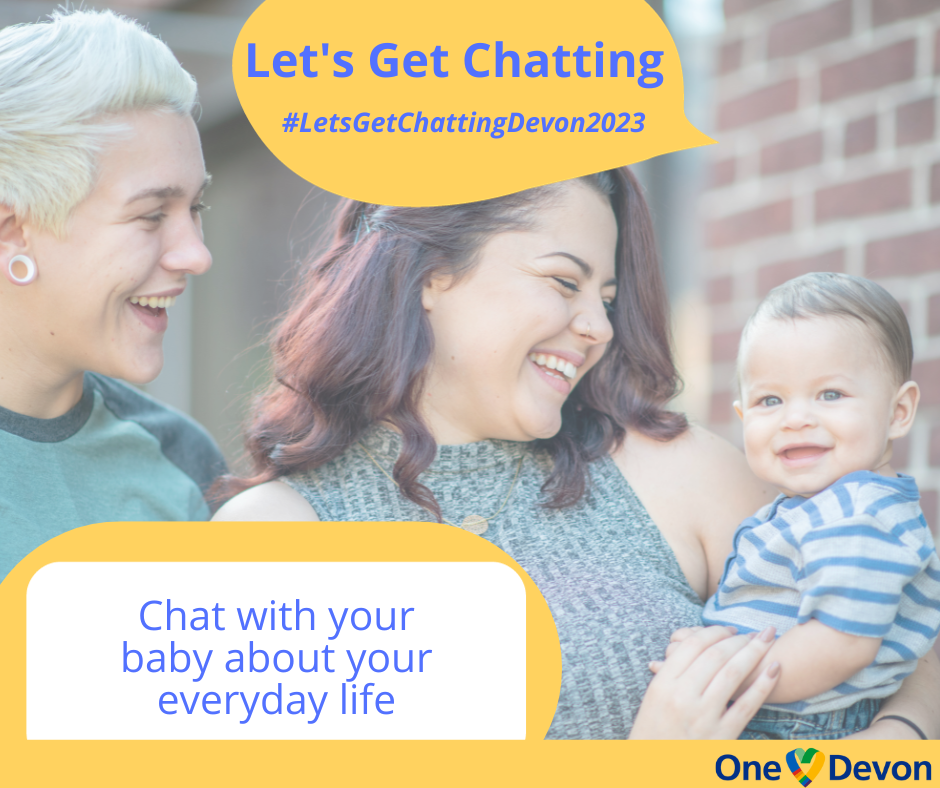
Babies in their first two years of life will become more and more aware of what happens in their daily life. When you chat about what you are looking at together, use simple words to explain what you are doing, and chat during daily routines it helps your baby hear the same simple words every day. This sets them up to be able to learn to use those words themselves as they learn to talk.
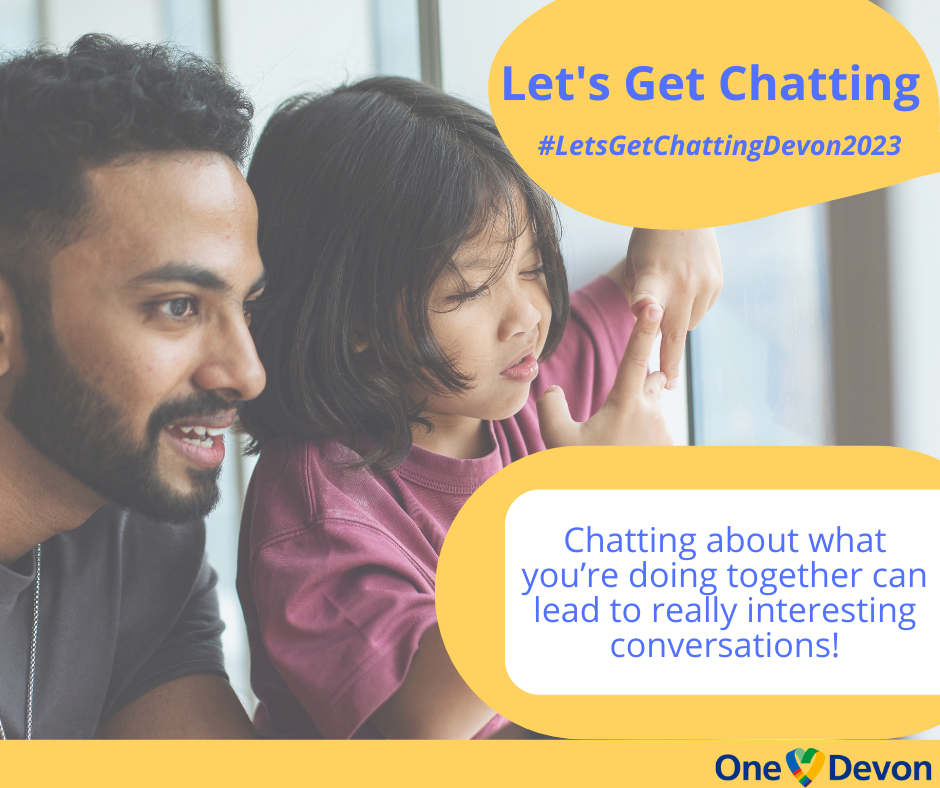
Together Time with your child each day can be time set aside to do what interests your child and you can chat with them as you play. This could be looking through a book, playing with toys they like, or chatting about what you both see out of a window in your home. You can ask questions that start with ‘I wonder…?’ to start an interesting conversation.
Asking questions with no right or wrong answers can lead to great conversations with your child about how you both see the world.
Did you know…
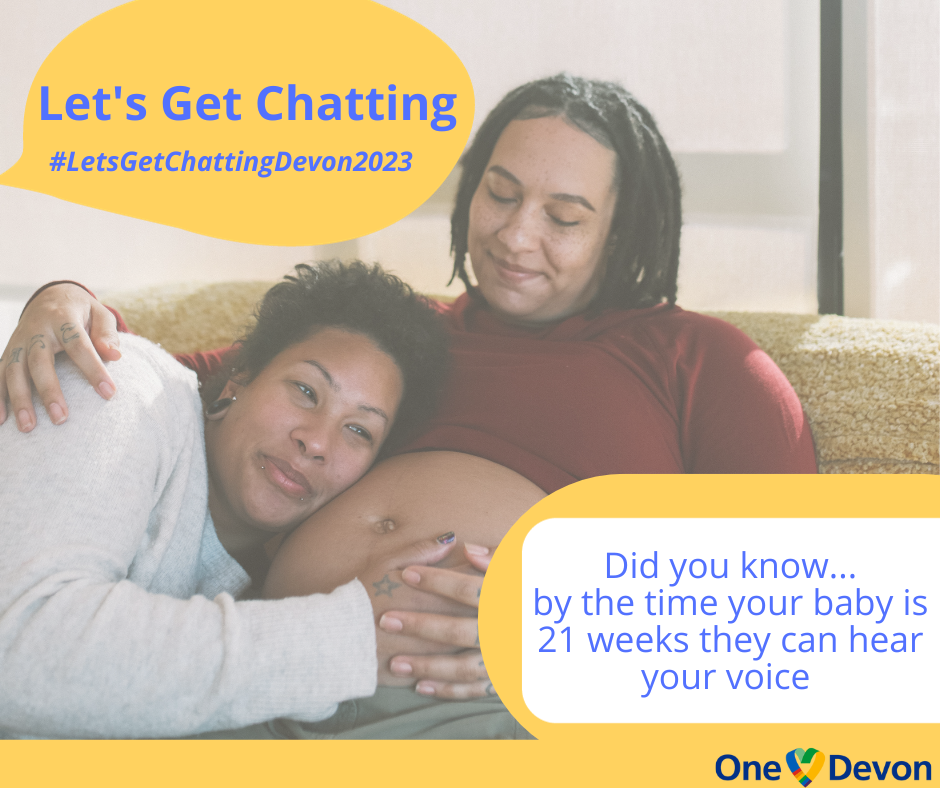
As you start the 2nd half of your pregnancy, your baby is getting ready for life outside the womb and can hear noises and voices. When you chat with them, sing to them and respond to their movements you are connecting with them and showing them that you want to communicate with them!
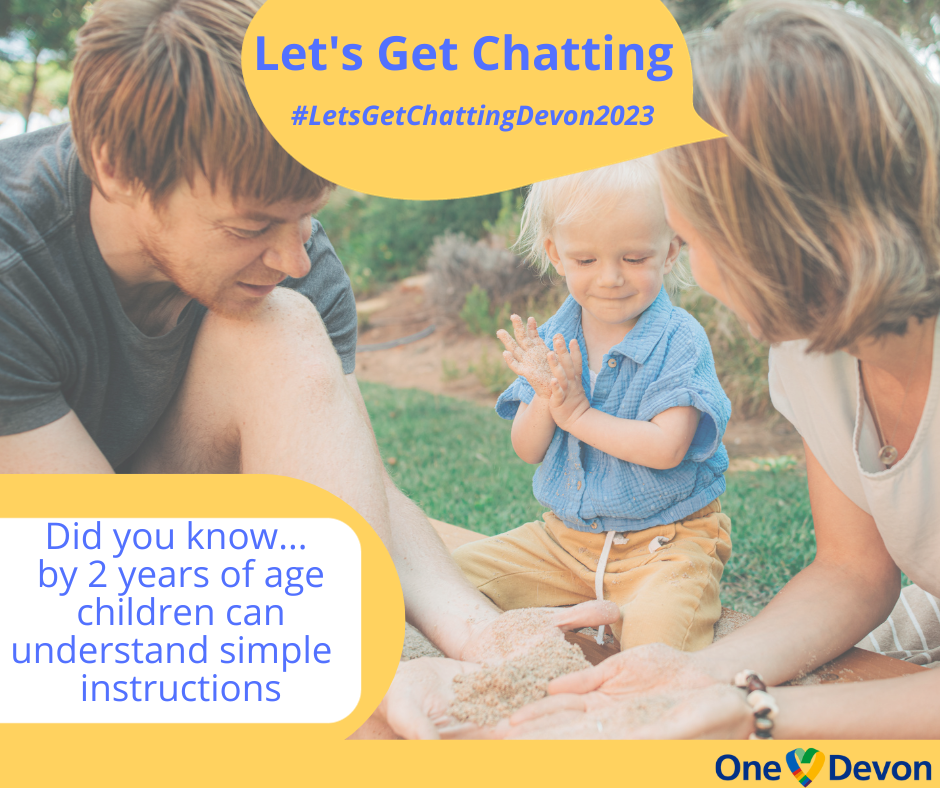
By 2 years of age children have heard many words and are used to what happens in their daily life. These repeated experiences help them to understand simple questions and instructions like “where’s your drink?”, “go and get your coat” and “daddy’s turn”.
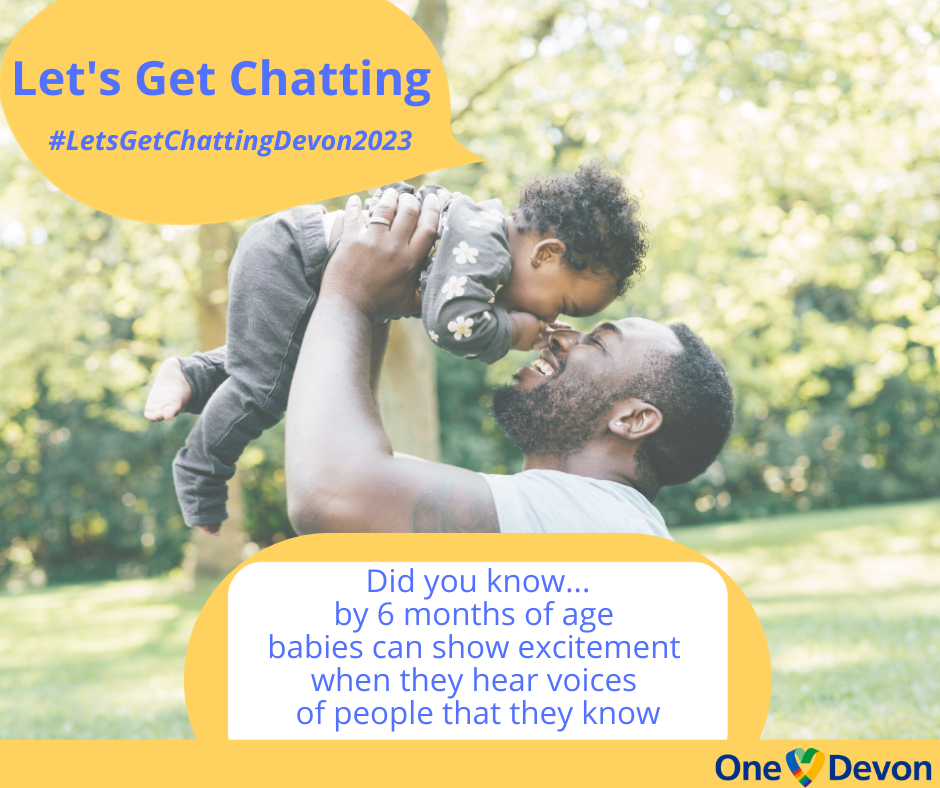
It’s amazing that before a baby is even 1 year old they recognise and can get excited when they hear voices coming of the special people in their life. They may show their excitement by kicking or waving their arms or making noises. You can respond with your facial expression and voice to show you are excited to see them too!
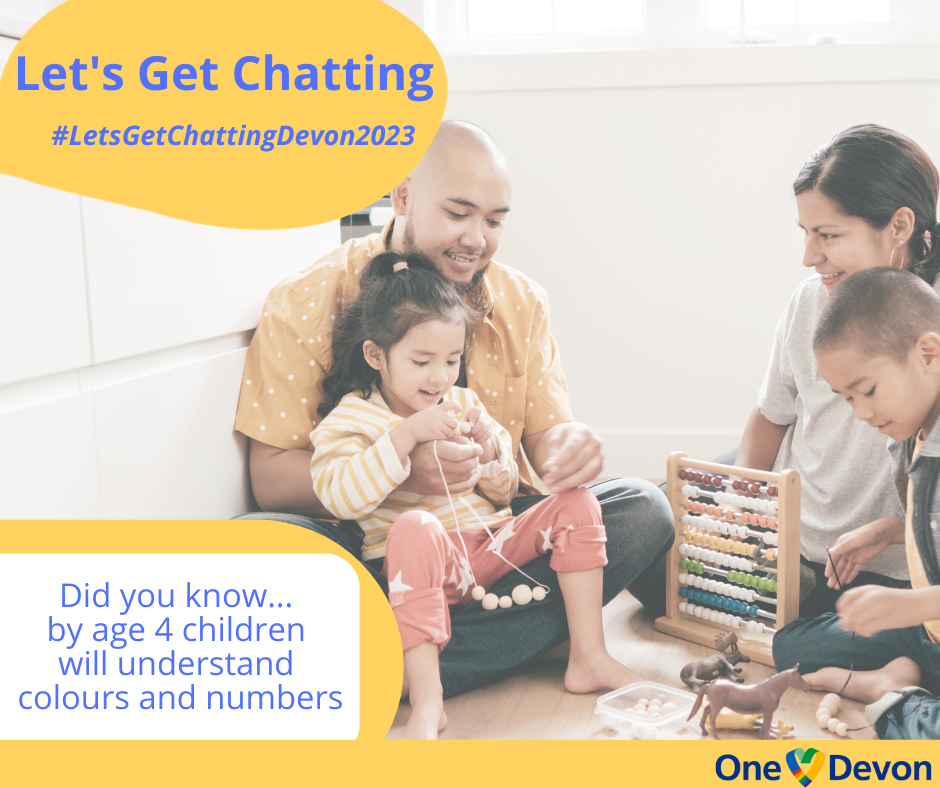
Between the ages of 3 and 4 your child’s understanding will grow from the things that happen in their daily life to include lots of different words. They will understand words for different colours and numbers and words such as ‘yesterday’ and ‘tomorrow’. They will understand you when you ask for them to give you a ‘red car’ or ‘three blocks’. If they don’t quite understand these yet, you can help them by using these kind of words during play and daily life.
When you use those words to describe what you’re doing together it helps them hear the words in the right situation. Try not to turn it into a test of what they know, keep it playful!
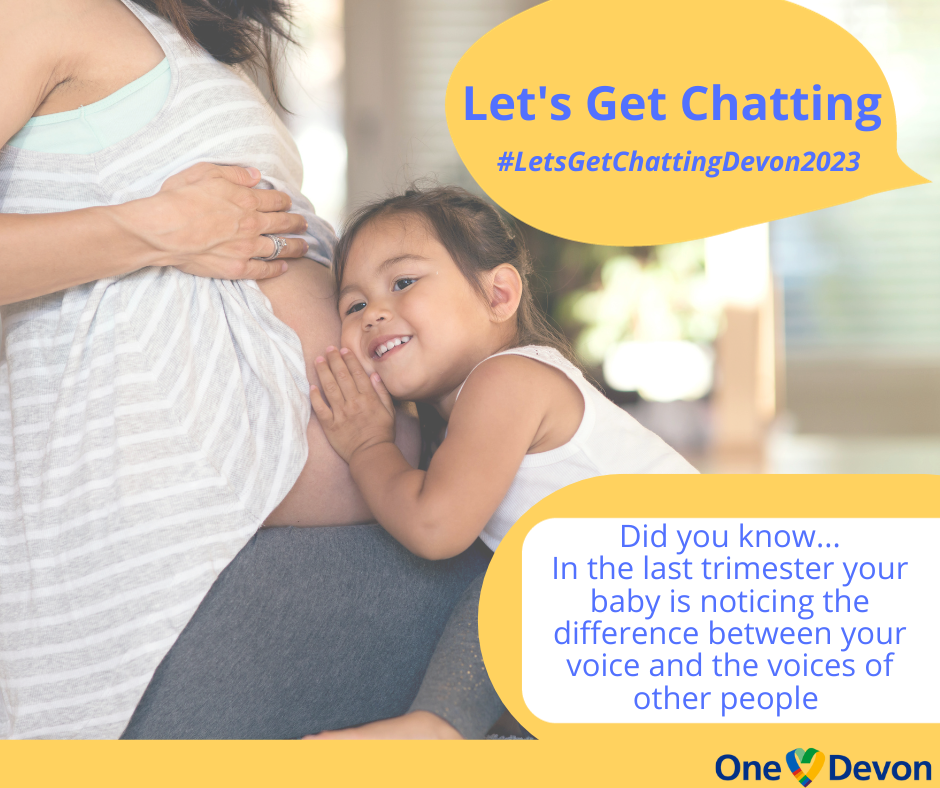
In the final trimester babies can start to recognise different voices outside the womb. Encouraging the special people in your baby’s life to talk to your bump can support them to create a bond with your baby before they are born.
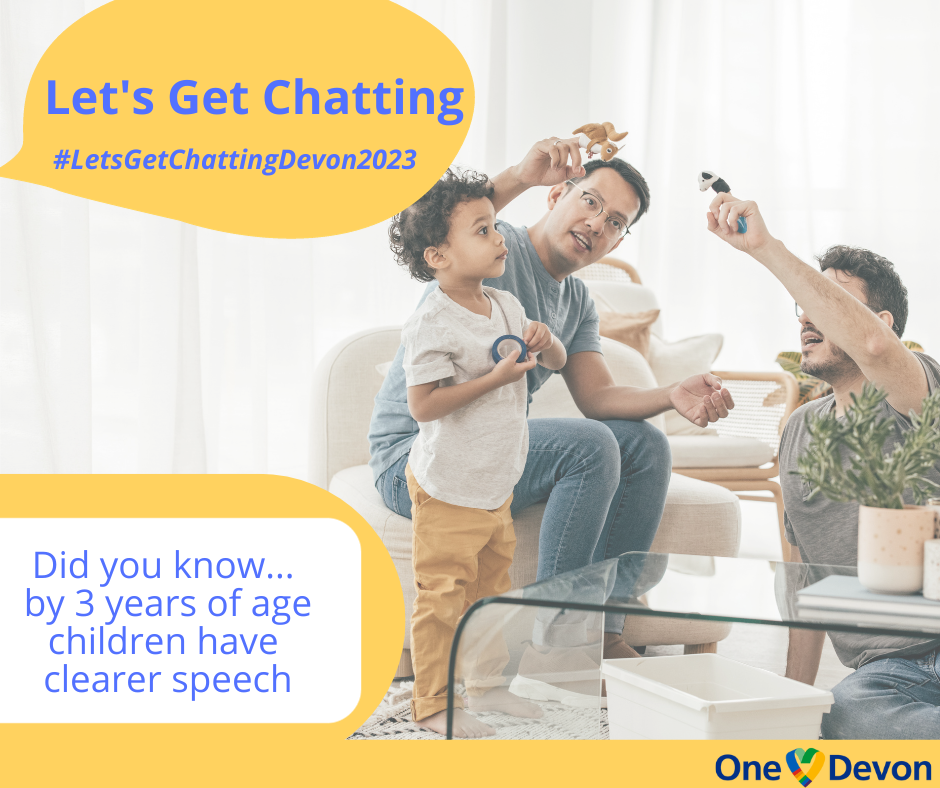
By 3 years of age children have usually developed clearer speech. The people who spend the most time with them can understand what they say. Children will still have some immaturities and they may say things like ‘pider’ instead of ‘spider’.
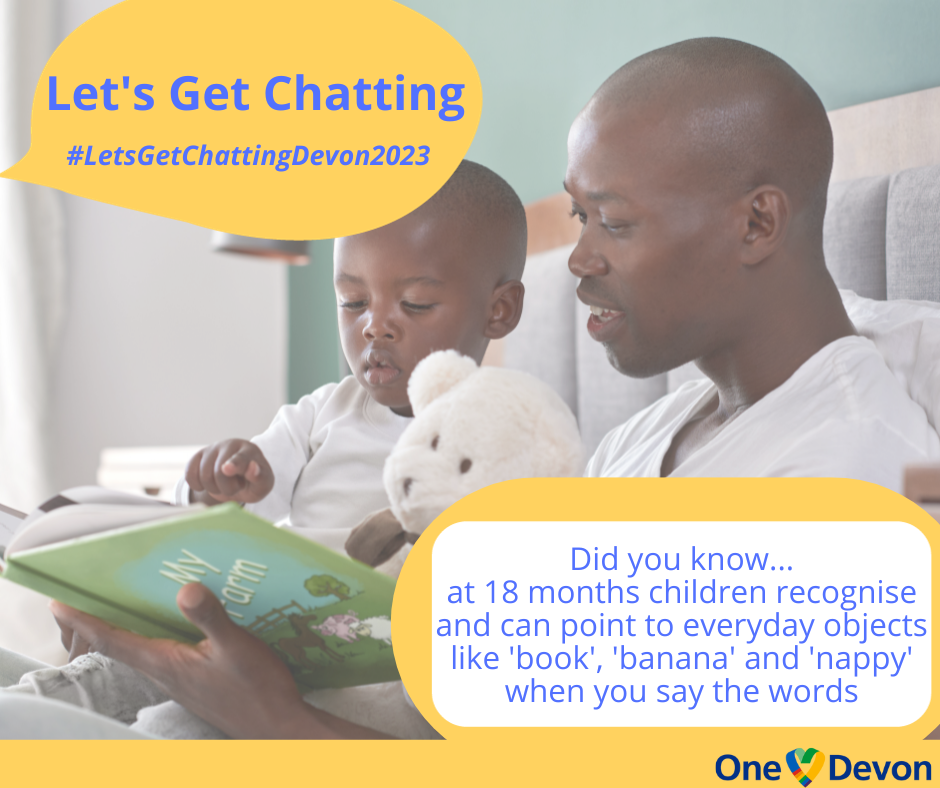
Pointing is a big step in your child’s communication development. It may start with your child using their whole hand before they use a single finger. Why not try pointing out things to your child so that they can see you doing it and hear the words that go with what you are pointing at.
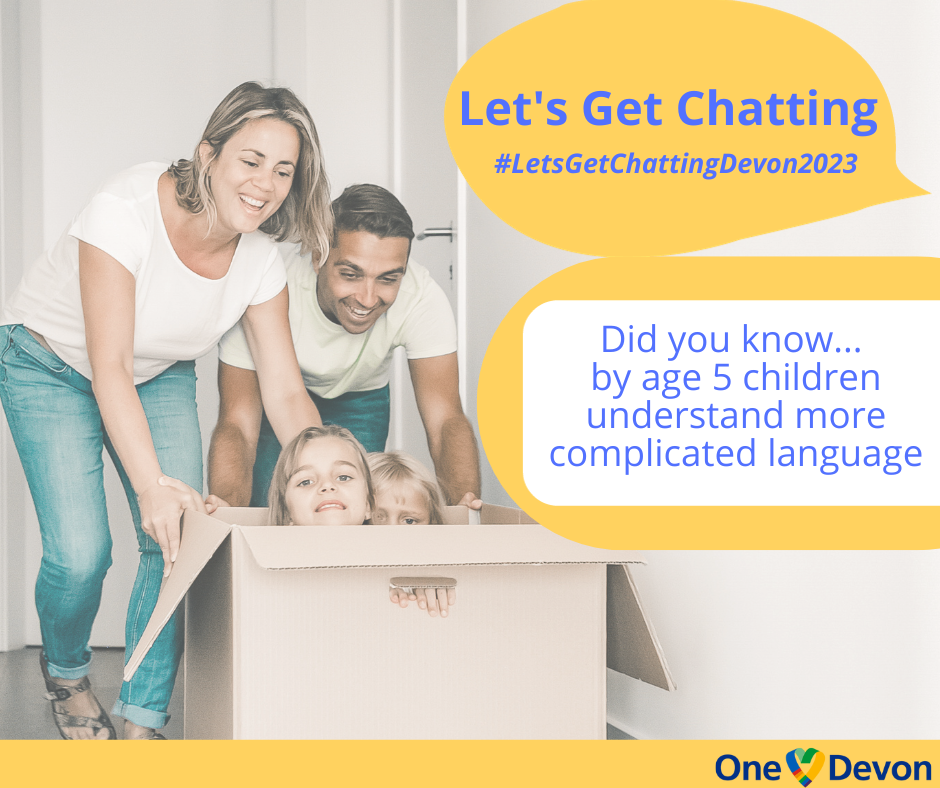
By age 5 children understand more complicated language such as ‘first’, ‘last’, ‘might’, ‘maybe’, ‘above’ and ‘in between’. It helps when adults model these words in lots of different situations so that children can develop a really good understanding of the more tricky words.
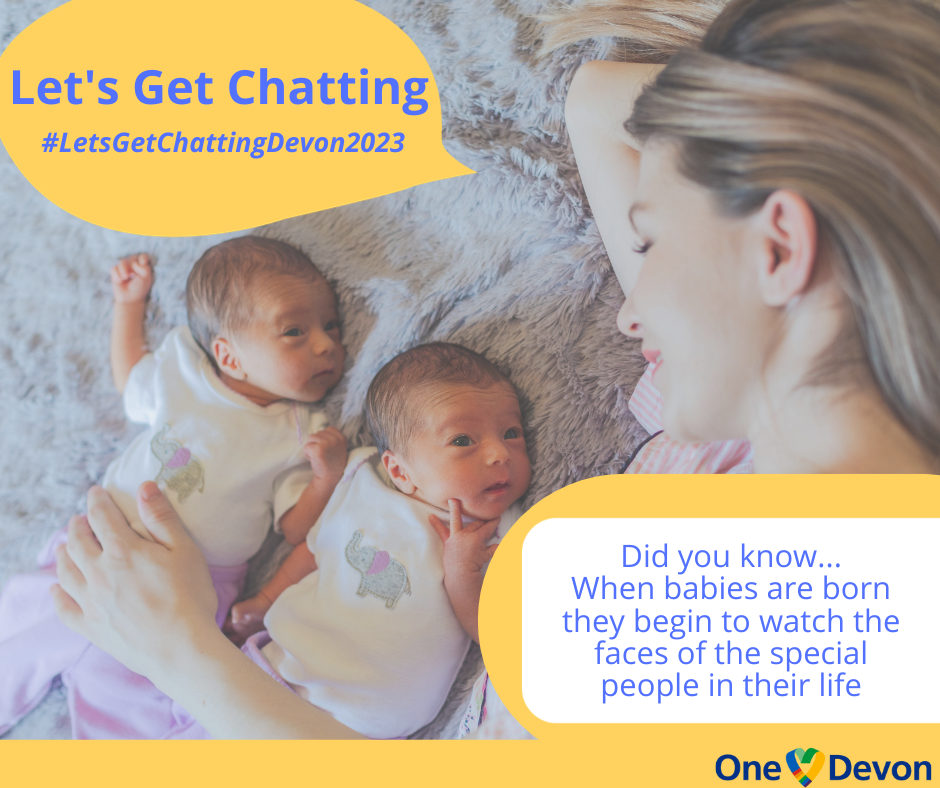
Babies learn so much from watching the faces of the special people in their lives. You may see them start to copy what they see. Copying what they see is a big part of how they start to communicate.
Lots of face to face time in the first few weeks of a baby’s life is an amazing way to support their communication and show them how loved they are.
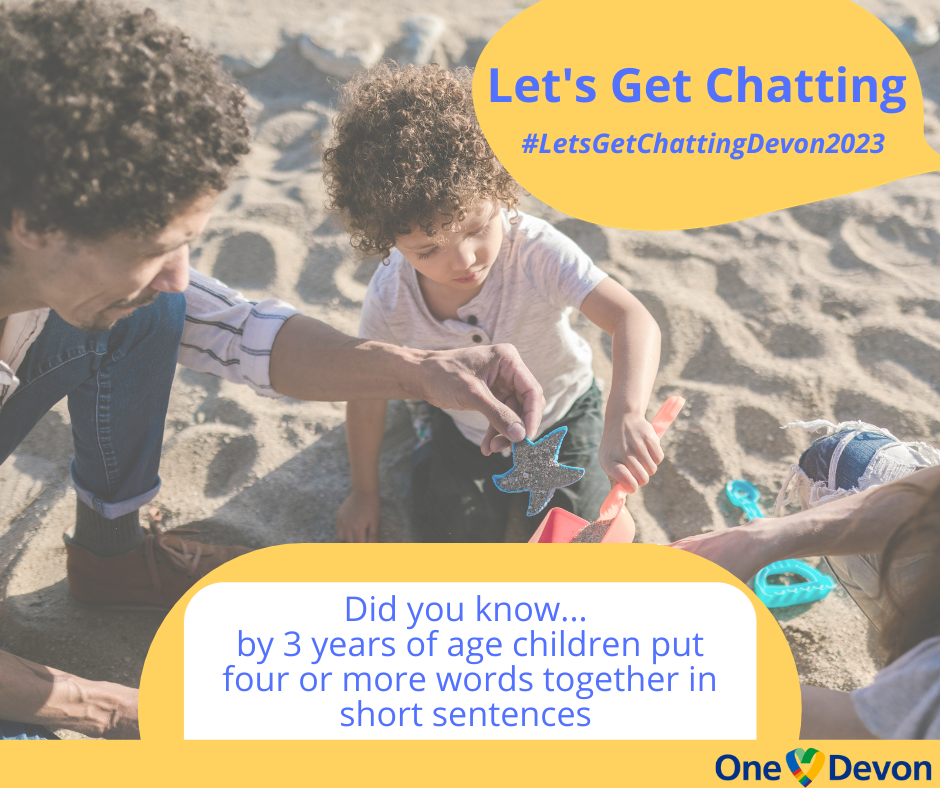
Three year olds will often use little sentences to ask for things, to show you things and to tell you what they don’t want. It’s common that they may say sentences like ‘him want his coat’ which don’t sound quite right. Don’t worry, just copy back to them what they have said using the right words and sounds.
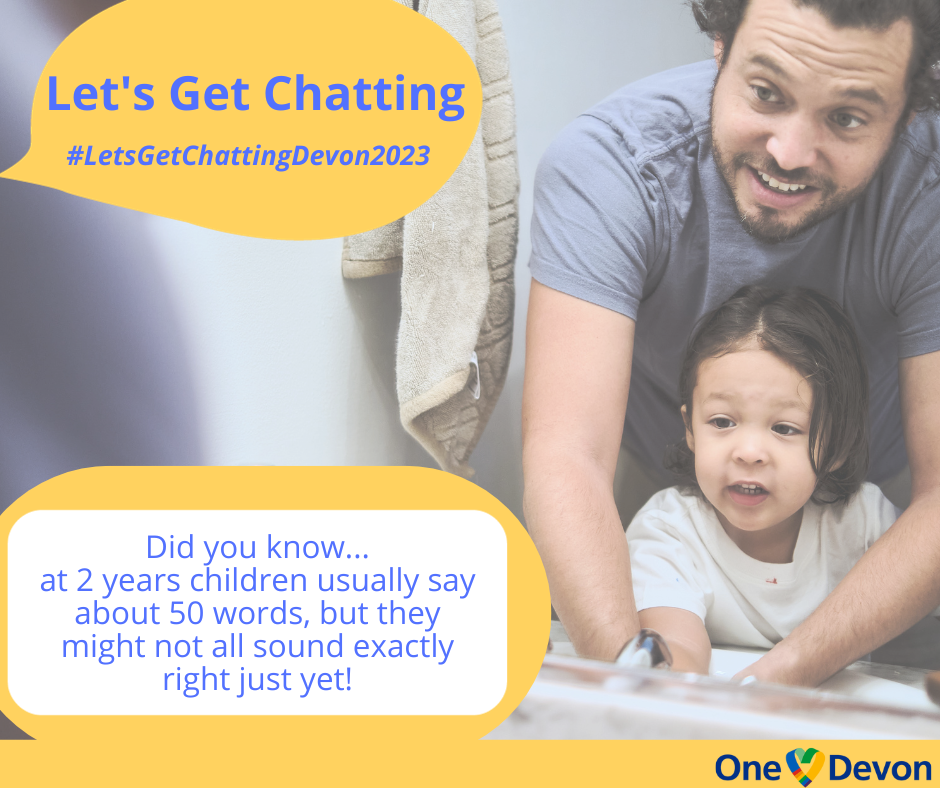
Between the ages of 1 and 2 children learn so many words, especially the ones that they hear you say each day!
At 2 years children usually say about 50 words – things like ‘car’, ‘juice’ and ‘biscuit’. The words they use might not sound the way an adult would say it, they might say ‘tar’ instead of ‘car’. But that’s ok, say the word back to them in the right way – ‘that’s right, a car!’
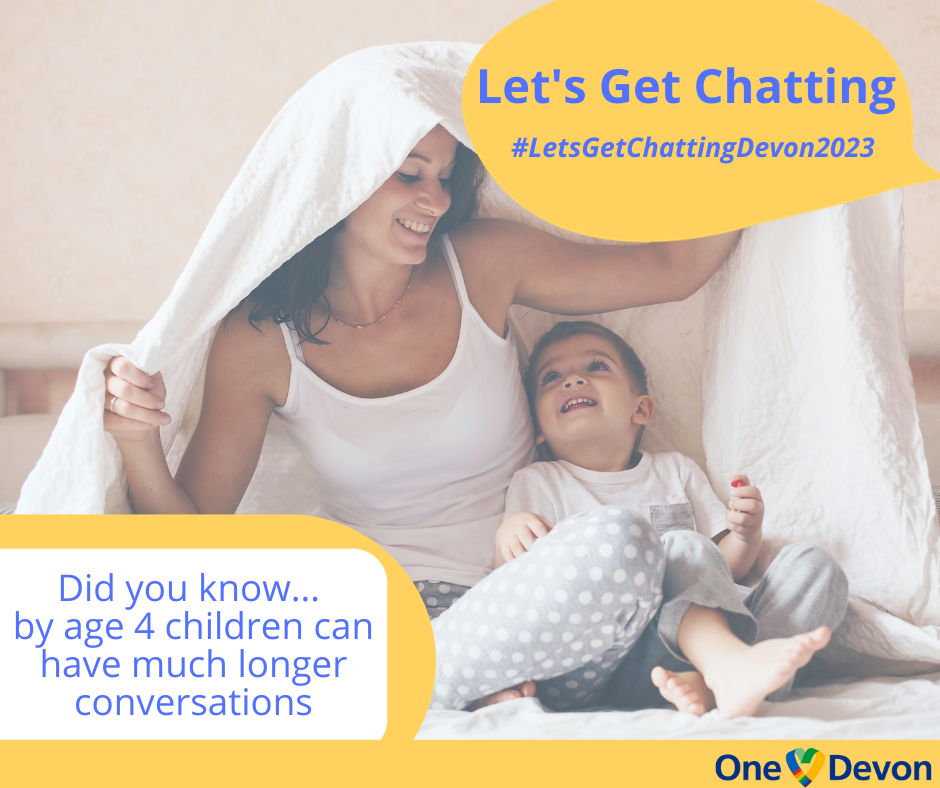
By age 4 children can use sentences to tell you about their day and things that happened in the past. Most of the words they use will have the correct sounds in them and their sentences will be well formed.
When to seek support
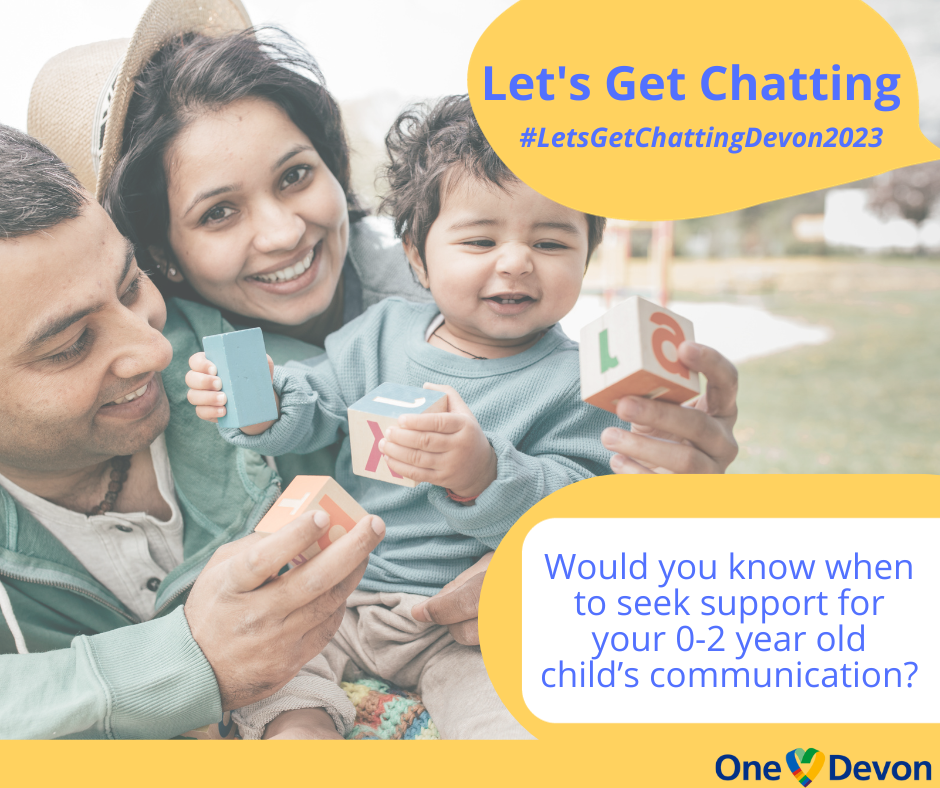
Speech and Language UK website has a guide to the typical stages of speech and language development in babies, children and young people.
When you understand typical communication development at different ages you can identify if you and your child would benefit from support.
Getting support early might look like any of the following:
- having some advice or support through your local Family Hub or Children Centre
- seeing what is on offer at your local Library
- getting more ideas about what you can do at home through websites like Tiny Happy People
- speaking to a Speech and Language Therapist through the advice line or the virtual drop in sessions
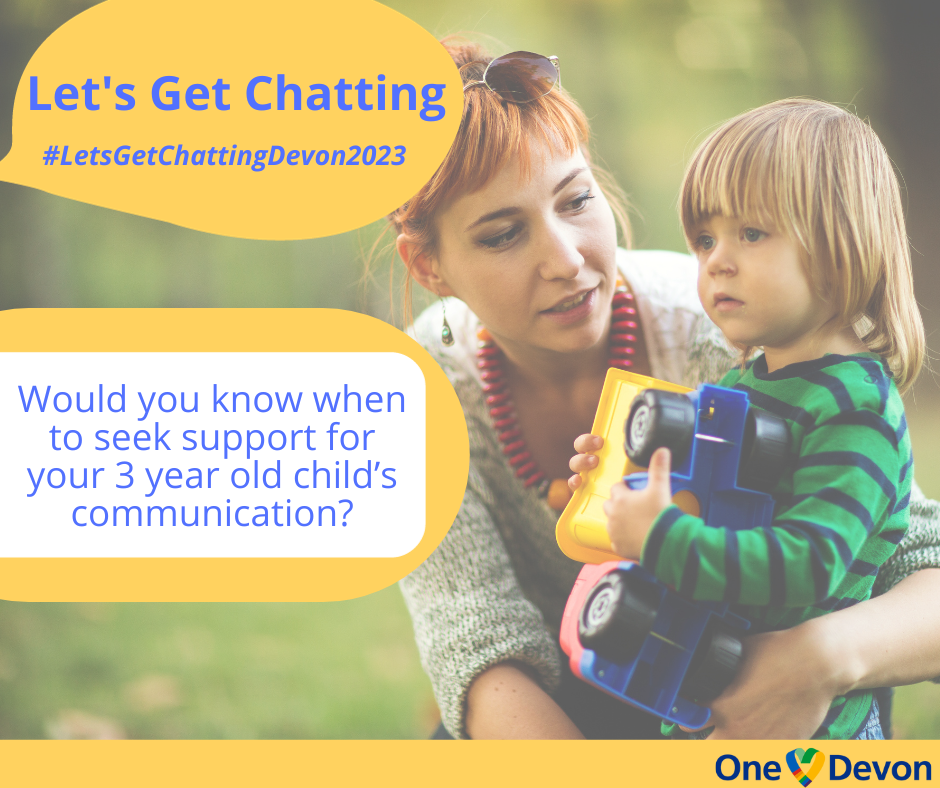
Children generally understand more than they can say. You can see this as they do the things you ask them to do around the home and when you’re playing together. If you notice that your child really struggles to follow your day to day instructions by the time they are 3, it’s a good idea to speak to their early years setting, a Health Visitor or Children’s Centre worker about what support might be helpful.
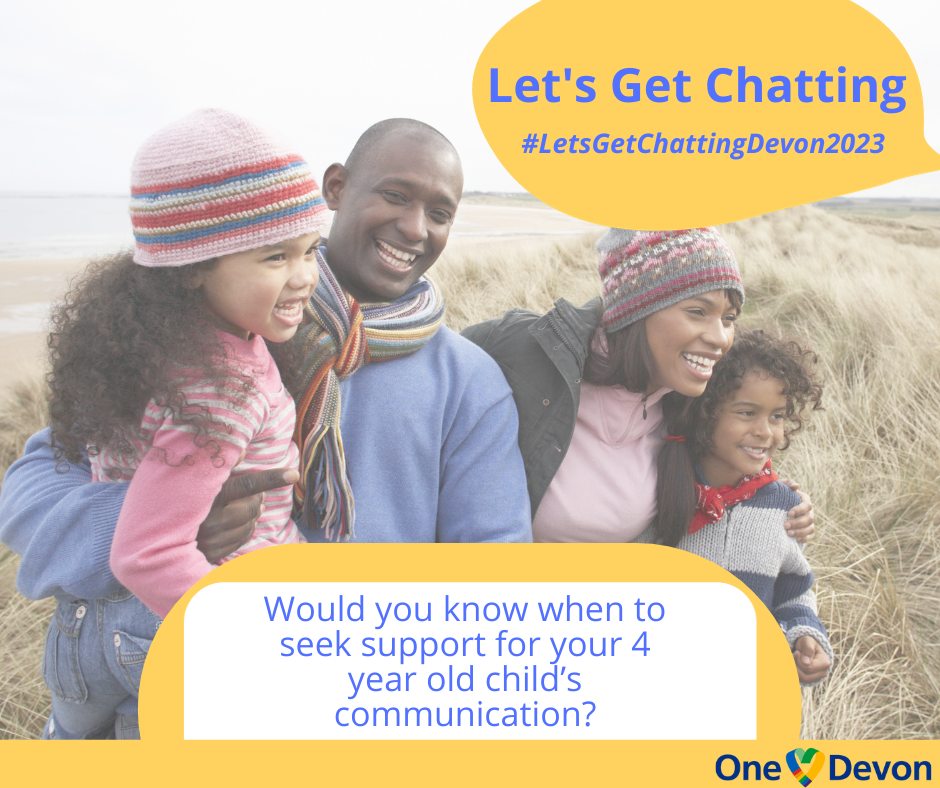
It’s common for children to have some difficulty with speech sounds as they are learning to talk. You may understand everything your child says because you have tuned into them. But if your chatty four year old is difficult to understand by other adults who chat with them, such as family friends or relatives they don’t see every day, it’s a good idea to speak to their early years setting or school about whether they may need support for their communication.
You can also check how they are developing yourself by visiting the Speech and Language UK website – Child’s Progress Checker
People who can help
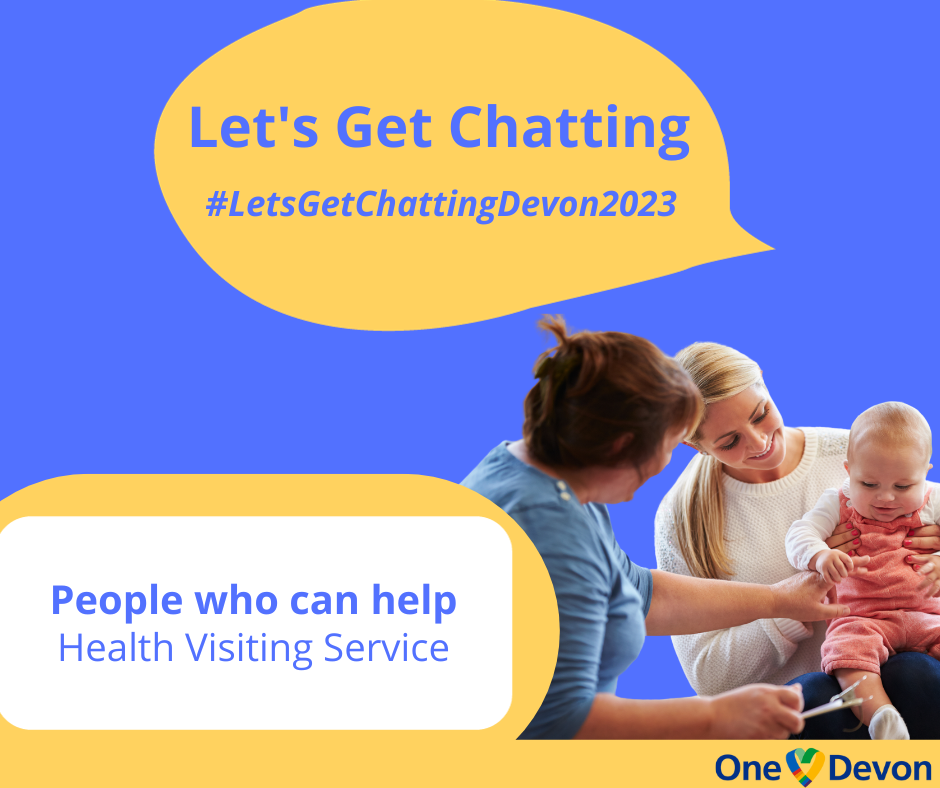
Family life and bringing up children is rewarding but can also be challenging. It has been widely recognised that your child’s early years are important and will influence their development and future achievements.
Health Visitors are qualified nurses or midwives with additional training in public health. They work in local communities, mainly with children aged up to five and their families, to help ensure every child gets the best possible start in life.
Health visitors work in partnership with many other agencies and workers in the community; they aim to support parents and carers of children to meet their potential. Across Plymouth are child health clinics and emerging family hubs where families with children can easily drop in and access the Health Visiting service.

‘Hi, my name is Stephen and I have been a SENCO and Early Years Teacher for more years than I would care to count! My role involves helping parents to better understand what support is available for their child and to assist them on accessing this in a timely manner. I work closely with parents, school staff and other professional agencies to ensure that every child has the best possible chance of achieving their fullest potential.’
If your child attends a school or early years setting you can speak to them about who the SENCO is and how they can support you and your child.
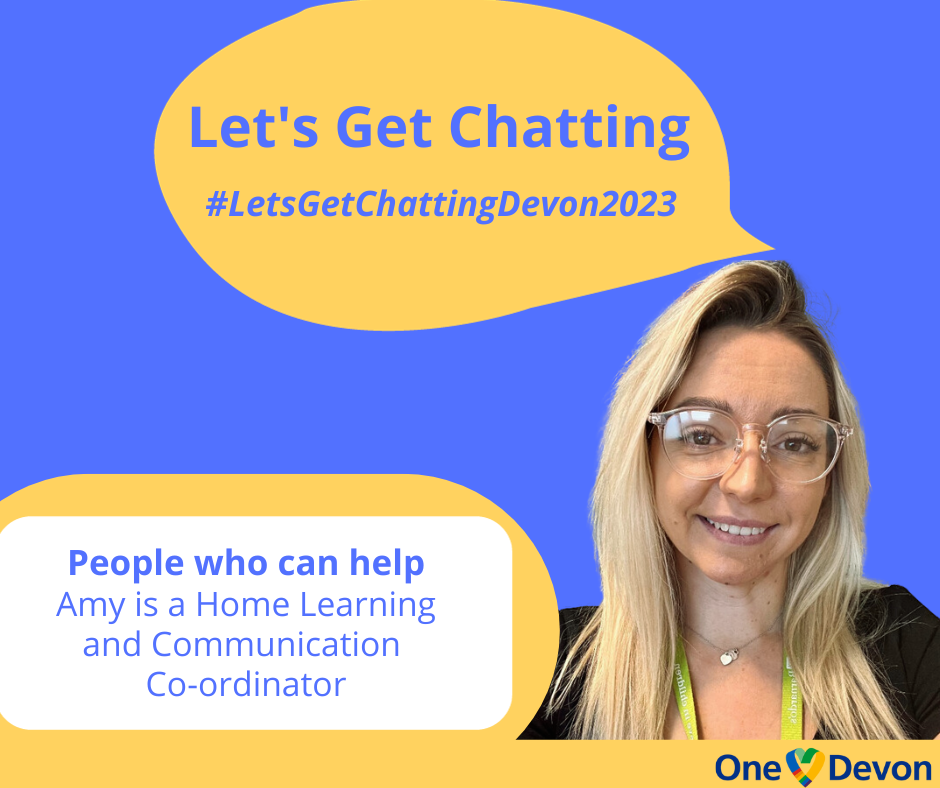
‘Hello, I’m Amy and have been working within the early years sector for over 12 years. I currently work within all clusters of Barnardo’s family hubs & children’s centres in Plymouth. My role within the centres is Home Learning and Communication Co-ordinator and crèche team lead. I facilitate Chatterbox, crèches and Peep groups across the city and all have an emphasis on home learning and speech and language development.
Within my role I am exceptionally lucky to meet many wonderful children and help support their learning and development in the all-important first years of life. I am a real advocate for play and believe that a child can learn so much through being curious and exploring.
Play provides such a wonderful opportunity for speech and language development and by supporting parents to provide positive interactions, together we can encourage speech and language development to flourish. We offer play ideas in the groups that the children’s centre run and home learning activities in Peep groups to extend into your home.
If you would like more information on play ideas to support speech and language development, and a more structured group, please feel free to come along to your local Peep group. These can be found on the Barnardo’s timetable.’
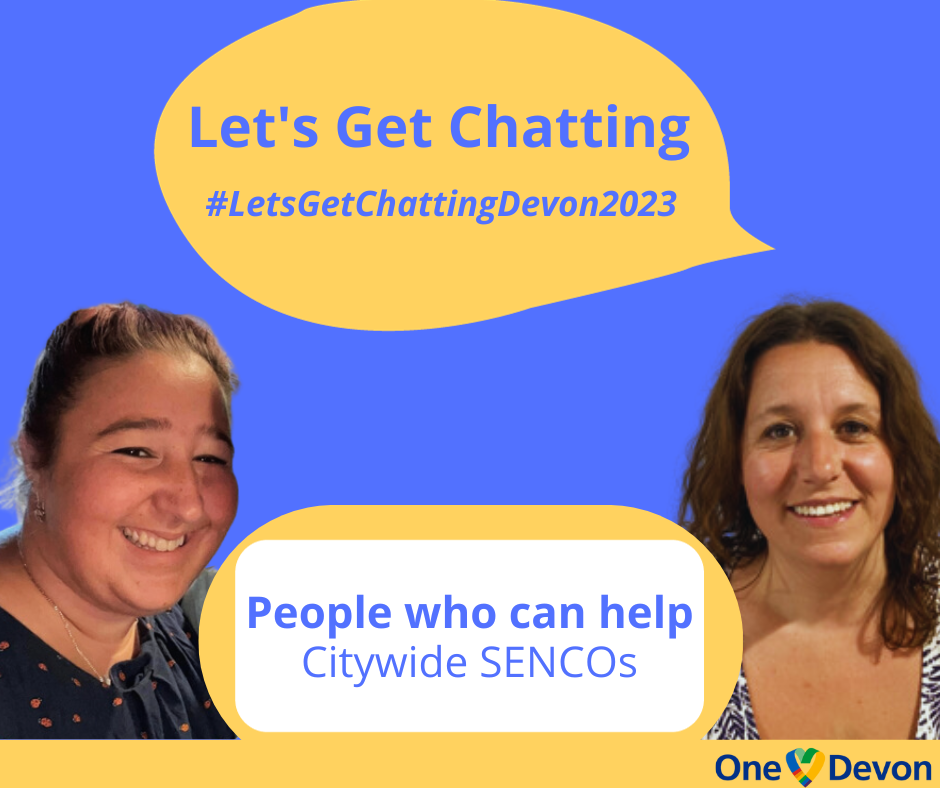
‘Hi, we are Naomi and Angel and we are the Citywide SENDCO’s for Barnardo’s Plymouth. We lead our Step by Step groups which are for children with a developmental delay and/or a disability.
Within the groups we use Makaton with singing and when interacting with the children, and we promote the use of communication boards that are introduced to children and families by the speech and language therapists who visit us.
Although we do not currently have any children using full picture exchange (PECS) or AAC based aids, we both have experience in this area. We can discuss these with families, advise on the best way to introduce them with your child and will happily use PECS or an AAC device within a session with children who require them.
Alongside this we also deliver a Solihull Parenting approach for parents of children with disabilities including learning disabilities, where we explore developing verbal and nonverbal communication with your child.’
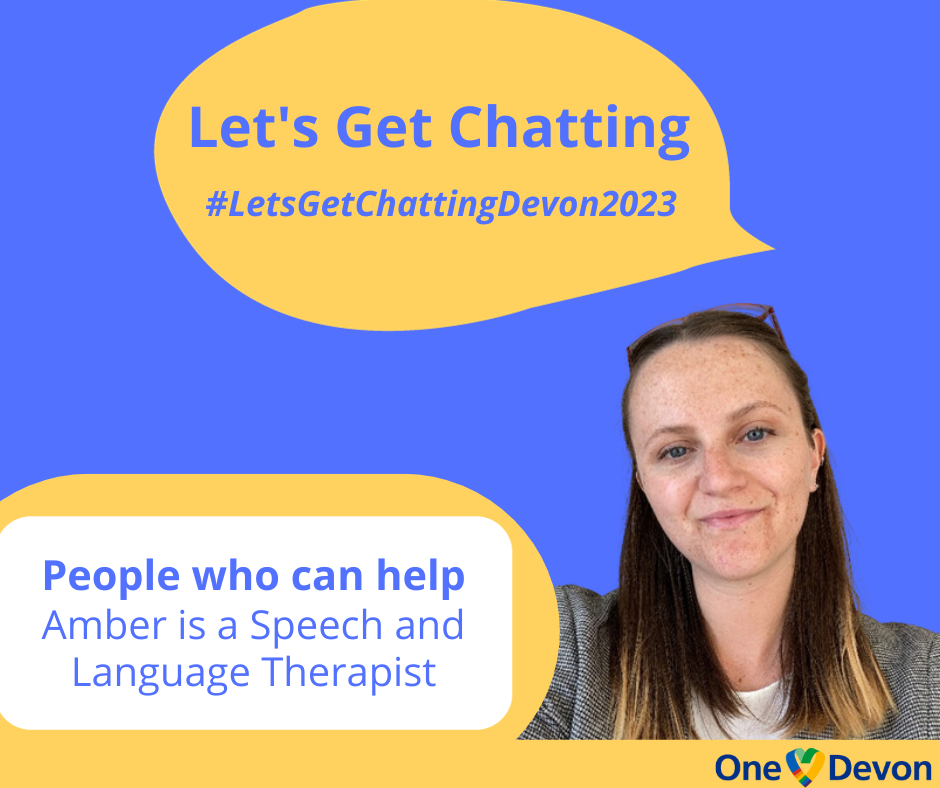
‘Hi, my name is Amber, and I am a Children’s Speech and Language Therapist at Livewell Southwest in Plymouth.
As a community therapist, I support children and young people, aged 0-19 in the North of the city, with a range of speech, language, and communication needs. I work in a variety of settings including children’s centres, clinics, nurseries, schools, colleges, and families’ homes. My role consists of assessing, planning/delivering therapy, and providing advice to up skill parents/carers and professionals to better support children in their everyday environments.
We have specialist speech and language teams that sit alongside us in the community. I can consult my colleagues for advice and joint visits to help me to better support a child with a specific area of need. Our Early Help Team provide free training to schools and pre-schools in Plymouth and parents/carers as we know from research that early help is key to improving outcomes for children and young people.
Each child/young person is different and as their own set of individual strengths and challenges. I believe it is an integral part of my job to not only identify areas that they need support in but to also highlight and praise their areas of strength. It is also important that I take the same approach with families and work alongside them to develop a positive communication environment for their children.
If your child is under the care of a Plymouth GP, you can contact our Admin Team on 01752 434844, to book in a Request For Help with a member of our Early Help Team. This is a team of Speech and Language Therapists who will contact you via telephone and provide advice regarding your child’s speech, language, and communication. They will also signpost you to resources/training and facilitate onward referrals if deemed appropriate.’
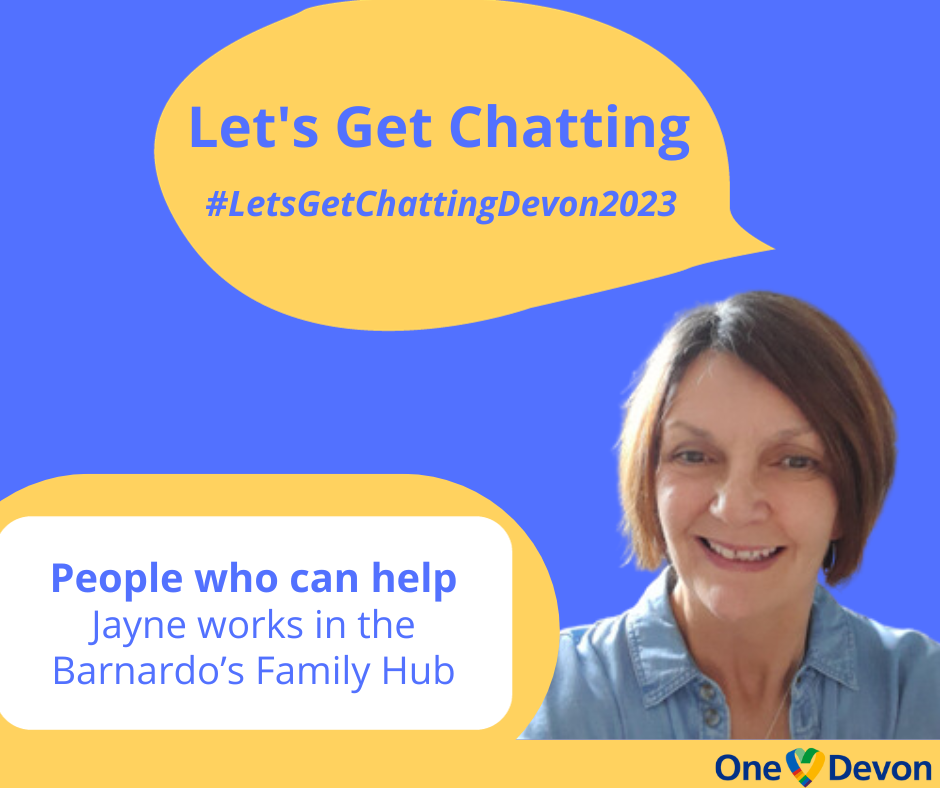
‘Hi, my name is Jayne and I work in the parenting team for Barnardo’s Family Hubs in Plymouth. My main role is to facilitate and deliver antenatal education to pregnant women and their families. Our team advocate and use the Solihull Parenting Approach across all our antenatal groups in Plymouth. The Solihull Approach is gentle and holistic and very well received. Our courses are diverse and inclusive and full of fun and laughter. I deliver a five-week course which gives parents-to-be the essential information about pregnancy, birth and caring for a new baby whilst using the Solihull principles of Containment, Reciprocity and Behaviour Management.
We discuss how by communicating with an unborn baby a parent can form an early and loving bond that will be reciprocated when their baby is born.’
If you are a parent or parent-to-be you are welcome to book a place to support your parenting journey via Plymouth children’s centre receptionists. The courses are free and places book quickly so be sure to get in touch.
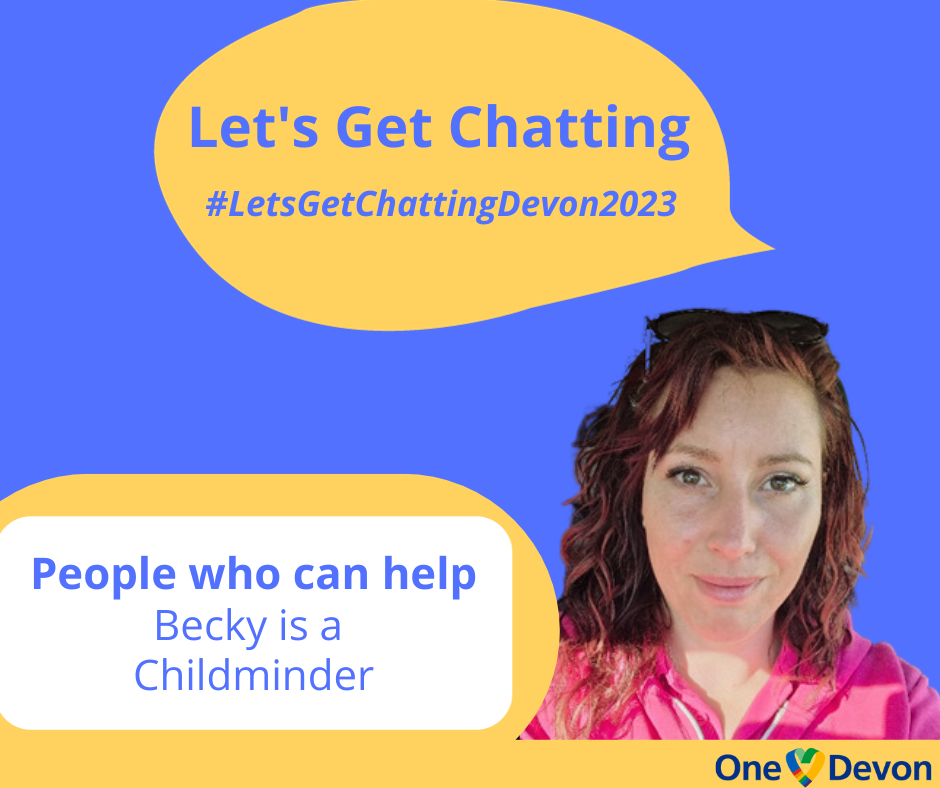
‘Hi, I’m Becky, an Ofsted registered childminder in Plymouth. Early Years is my passion, I absolutely adore working with little people and watching them grow and flourish. It is such a privilege to be able to work in a close partnership with parents and be a part of a child’s journey, especially those magical formative years, which shape the future of our children.
They say it takes a village to raise a child, and I believe this wholeheartedly. When a parent chooses me to care for their child, I become a part of their village. I am able to support parents with all aspects of their child’s development, not only using my own skills and knowledge as an Early Years professional, but with access to a whole wealth of professionals that can support me, or that I can signpost parents to for extra support at home.
In particular I am passionate about speech and language, there is no greater joy than being able to chat with a toddler; they have the best sense of humour and so much to share.
I love being able to help children learn to understand and use speech, and I recently completed an Elklan Level 1 Speech and Language Accreditation (Let’s Talk With Under 5’s), so that I am better able to support children in my setting.’
If your child attends childcare, you can ask your childminder or key person how they can support your child’s communication development.
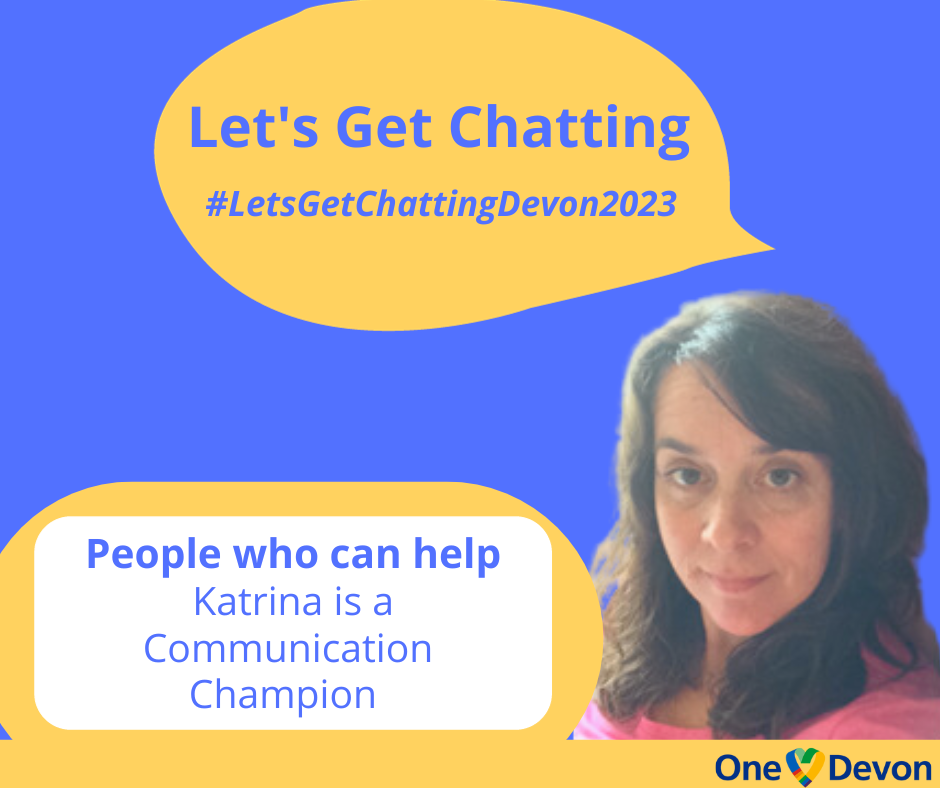
‘Hello I’m Katrina; I am a Key Worker and the ‘Communication Champion’ in a Plymouth nursery school. Each day I lead group activities which promote speaking and listening skills and support children who maybe struggling in developing language. I use lots of strategies to help children’s communication and language such as visual support and Makaton signing, as well as running various small group language support programmes.
Building children’s confidence and enabling them to communicate effectively is my passion. I value the information and expertise about their child that families share with me and use this as a starting point to talk to them about how they can help their child’s communication skills at home.
I work in partnership with the children’s parents/carers and the nursery school SENCO to identify the next steps children need to take in developing their speaking and listening skills and then put in place agreed plans to help every child succeed.’
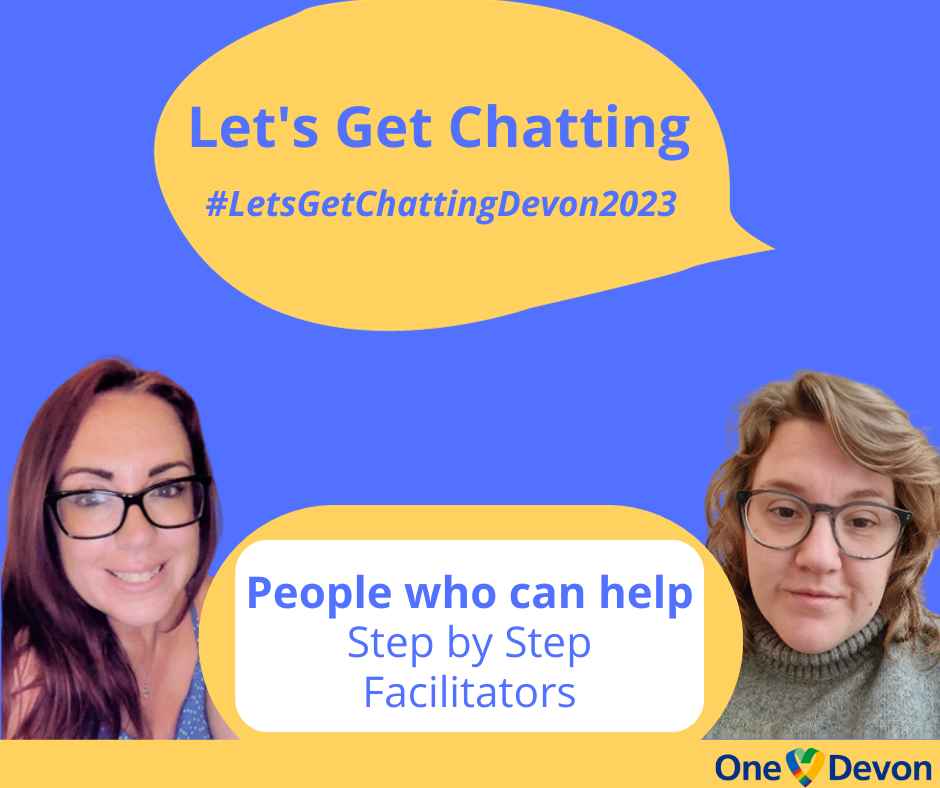
‘Hi, we are Becky and Jessica. We Facilitate the Step By Step group at Green Ark Children’s Centre.
This group is for children with a developmental delay and/or additional needs.
Within this group we provide opportunities for communication with the children using fun and engaging activities. We support parents by reinforcing positive communication strategies such as intensive interaction and explore the importance of reducing language and using key words with your child to help develop their understanding.
During our sessions over the terms we have visits from agencies who can offer additional advice and support, such as Speech and Language therapists, Parent Information Advice and Support, Plymouth Parent Carer Voice, Early Years service and Specialist Support workers.
Come along and help your child develop through different fun play ideas and activities.’
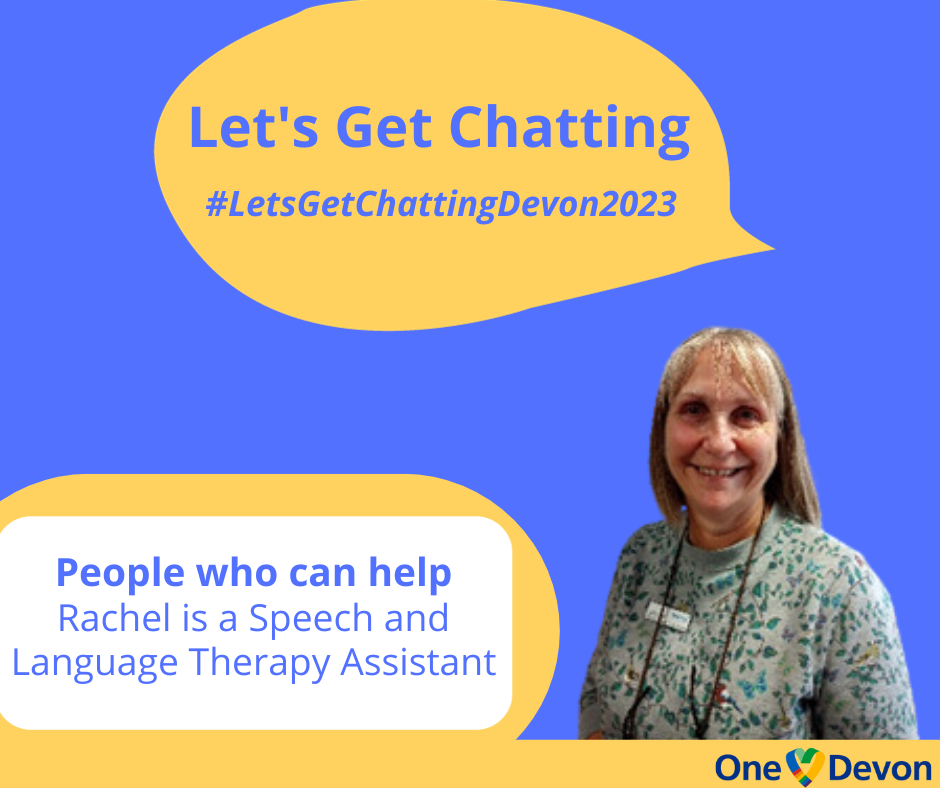
‘Hello, my name is Rachel and I’m a Paediatric Speech and Language Therapy Assistant working for Livewell in Plymouth.
I support the work of Speech and Language Therapists by working with children in their homes, in nursery settings and schools.
I follow the care aims set by the therapists and strive to enable parents, carers, teachers and teaching assistants to support their children with the targets by providing resources for further practice and modelling therapies and techniques. This includes attention and pre-verbal communication, use of sign, pictures, high and low technology, stammering, language and speech sounds errors.
Being able to understand language and communicate with others is key to academic and social success.
I find my job very varied and rewarding and love building relationships with the children I work with and watching them flourish.’
